ASEAN
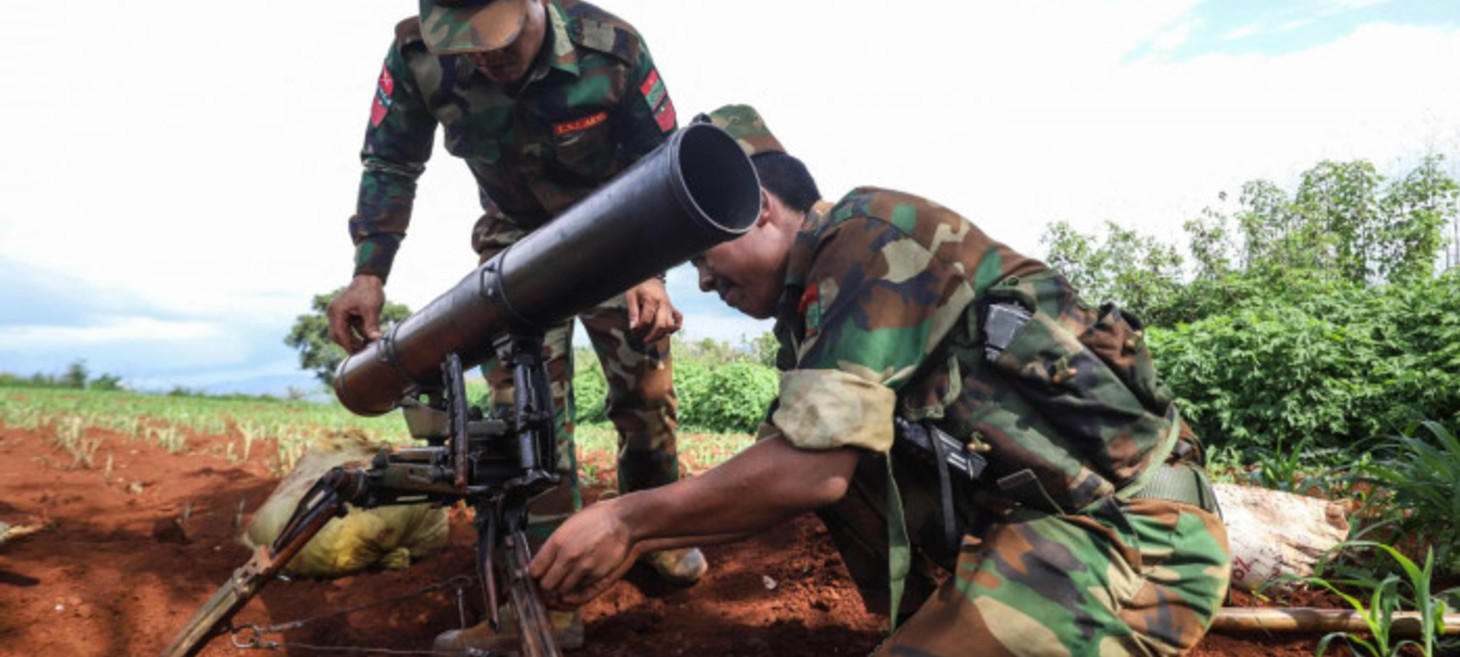
Myanmar crisis hits "fatigue" level
Nearly three and a half years after the military coup in February 2021, Myanmar's crisis remains unresolved, with ongoing conflict between the State Administration Council (SAC) and various ethnic armed organizations (EAOs) showing no signs of abating, and internal fighting among EAOs exacerbating the situation. The military has gradually lost territory, especially near borders with China, Thailand, and India, due to EAO victories. As the ASEAN Ministerial Meeting approaches, Laos, as the current ASEAN chair, adheres to the Five-Point Consensus for addressing the crisis, but some members seek alternative approaches to foster dialogue. Amidst this, Thailand's efforts, including a proposed troika for reviewing the consensus and humanitarian aid, face setbacks due to personnel changes, highlighting the complexity of finding a unified ASEAN strategy. The situation underscores the deepening crisis and the challenges in achieving a resolution, with the conflict's impact on regional stability and the need for innovative diplomatic solutions.
Conflict
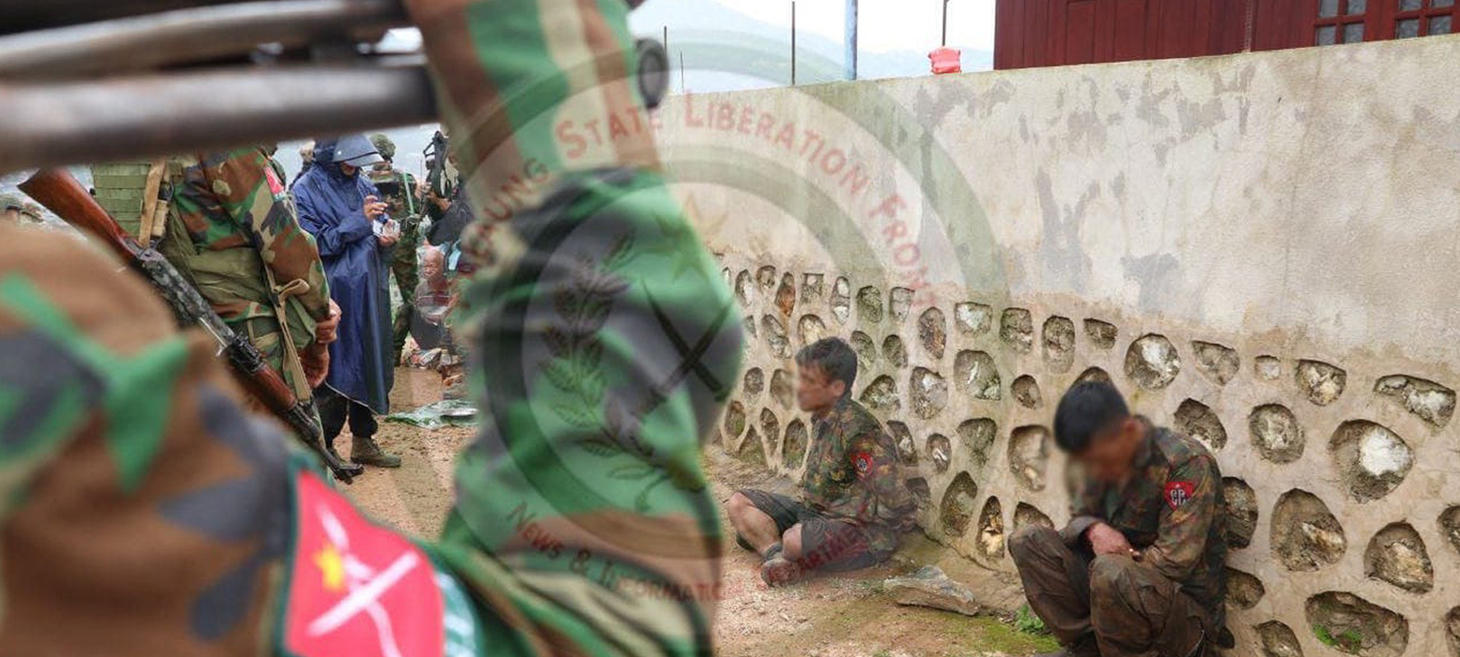
Defeated Myanmar Junta Troops Hiding Among Civilians: TNLA
In Mandalay Region and northern Shan State, Myanmar junta soldiers defeated by the Ta’ang National Liberation Army (TNLA) are reportedly disguising themselves as civilians to evade capture, according to local residents. The TNLA, alongside allies such as the People’s Liberation Army and Mandalay People’s Defense Force (PDF), have encircled Mogoke and Mongmit, conducting extensive searches for junta soldiers who have fled their bases. Amidst ongoing clashes, TNLA forces have attacked junta positions near pagodas and military operations commands, leading to the fall of eight junta-guarded locations. Despite continuous shelling and aerial bombings by the regime, anti-regime forces have managed to disrupt reinforcements via road, forcing the junta to airdrop supplies. The conflict, part of Operation 1027 launched by the Brotherhood Alliance, including the TNLA, has seen significant territorial gains against the junta, with hundreds of positions seized and a temporary truce brokered by China in January. However, resumed operations in June have intensified fighting, particularly in eastern Mogoke, highlighting the complex dynamics of the ongoing struggle for control in Myanmar's volatile regions.
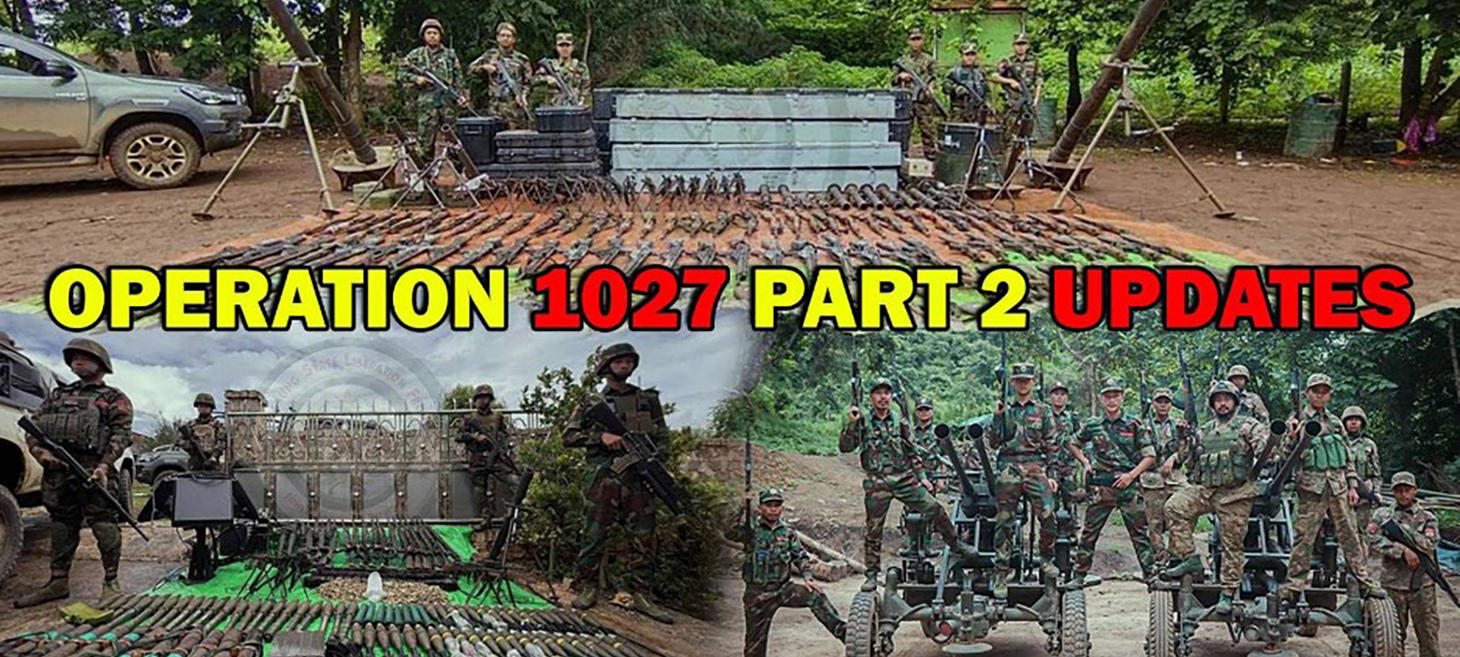
Scores of Myanmar Junta Bases Fall to Ethnic Alliance in Two Weeks
In a significant escalation, the Brotherhood Alliance and allied resistance groups have captured over 80 junta bases, including nearly ten military battalion headquarters and a town in northern Shan State and northern Mandalay Region, within two weeks of resuming Operation 1027, following the junta's violation of a China-brokered ceasefire. This offensive, involving the Ta’ang National Liberation Army (TNLA), Mandalay People’s Defense Force (PDF), and other groups, has led to the seizure of strategic locations like Nawnghkio town and parts of Mogoke, amidst heavy junta bombardments. The TNLA and allies aim to eradicate the military dictatorship, with the operation's success in capturing key areas and inflicting casualties on regime forces, including high-ranking officers. Despite the junta's retaliatory attacks on civilians and infrastructure, the alliance presses on, with the TNLA claiming Nawnghkio as the first town seized in this phase. The fighting, which has displaced thousands and caused civilian casualties, reflects the junta's struggle to maintain control, as highlighted by the UN special rapporteur's warning of the regime's destructive tactics. Amidst ongoing clashes and the junta's loss of territory, including in Lashio, the capital of northern Shan State, the alliance's advances suggest a broader strategy targeting Mandalay and potentially other regions, despite Chinese pressure to halt the operation. This development underscores the intensifying conflict and the alliance's determination to continue until achieving their goal, indicating a pivotal moment in Myanmar's ongoing struggle against the military regime, with the operation's expansion and the regime's desperate measures highlighting the complex dynamics of the civil war and the strategic importance of the areas involved.
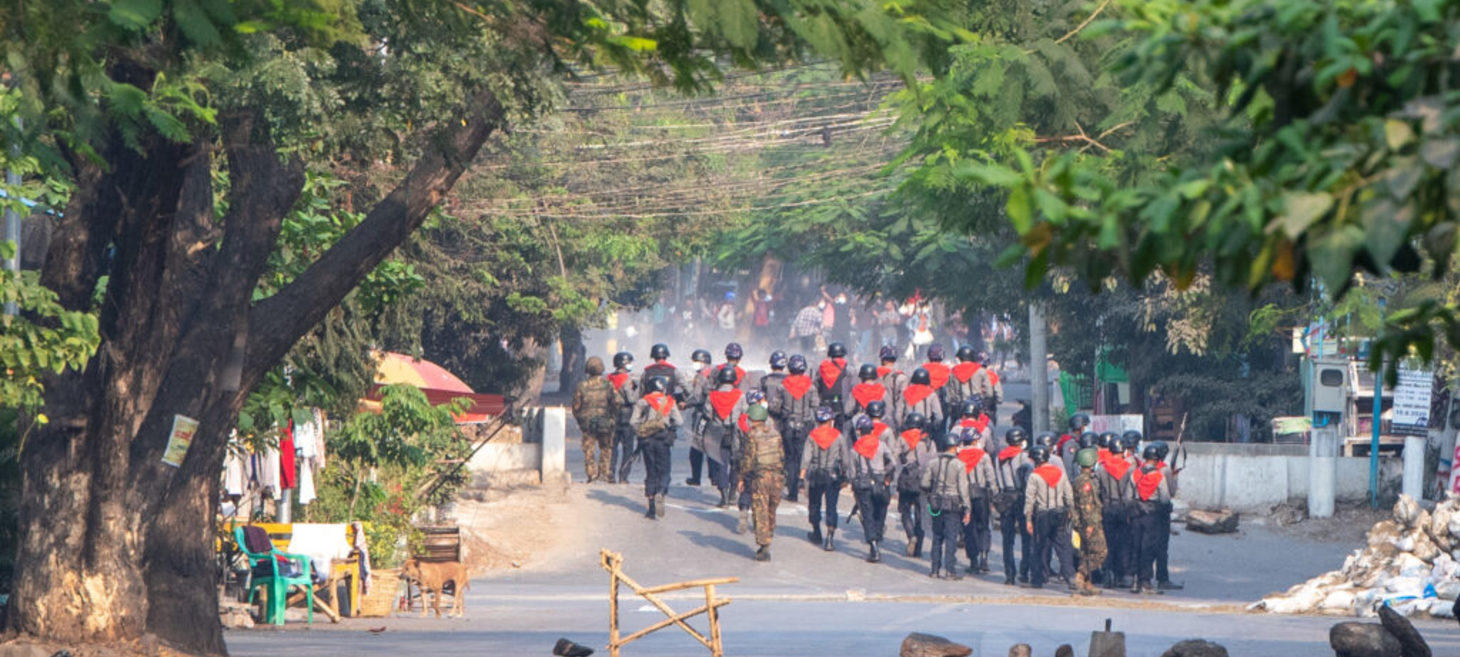
Security tightened in Mandalay as opponents of Myanmar regime draw near
As anti-regime forces advance towards Mandalay, Myanmar's second-largest city, security measures have been significantly tightened. Residents report an increased military presence following the capture of a junta missile battalion base in Shan State's Nawngkhio Township by the Ta'ang National Liberation Army (TNLA) and allied groups, marking a strategic gain for the resistance. Fighting continues north of Mandalay, with the Mandalay People's Defence Force (MDF-PDF) engaging junta positions in Madaya and Singu townships. In response to these developments, the regime has intensified efforts to secure Mandalay, home to the headquarters of its Central Regional Military Command, highlighting the escalating tensions and the strategic importance of the region in the ongoing conflict.
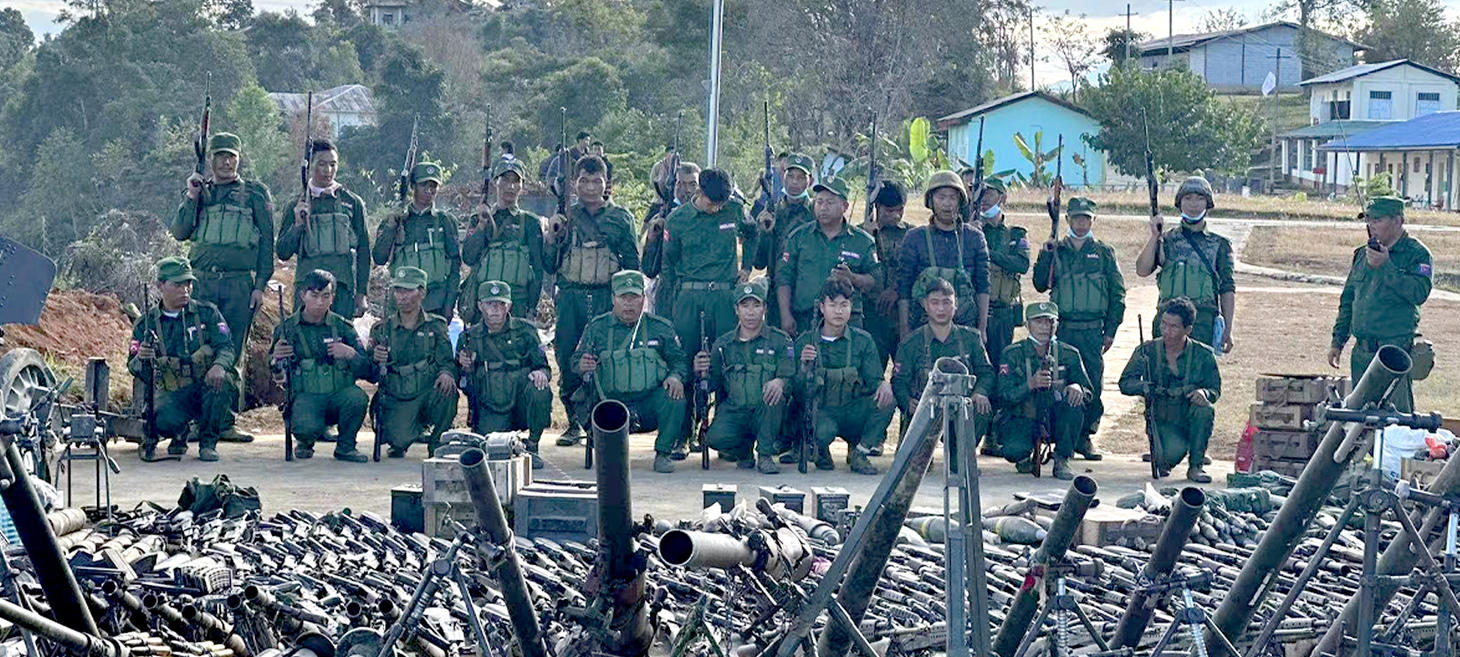
MNDAA Announces Four-Day Halt in Fighting in Myanmar’s N. Shan
The Myanmar National Democratic Alliance Army (MNDAA) declared a temporary cessation of hostilities against the military regime in northern Shan State, effective from July 14 to July 18, coinciding with the Third Plenary Session of the Communist Party of China. This decision reflects China's influence over the conflict dynamics in Myanmar, particularly concerning ethnic armed groups operating near its borders. The pause in fighting comes amid ongoing clashes between the MNDAA, alongside allies like the Ta'ang National Liberation Army (TNLA), and the junta forces, which have displaced thousands and led to significant civilian casualties. Despite the ceasefire announcement, the TNLA has not indicated whether it will follow suit, highlighting the complex and fluid nature of the conflict in Myanmar's northern regions.
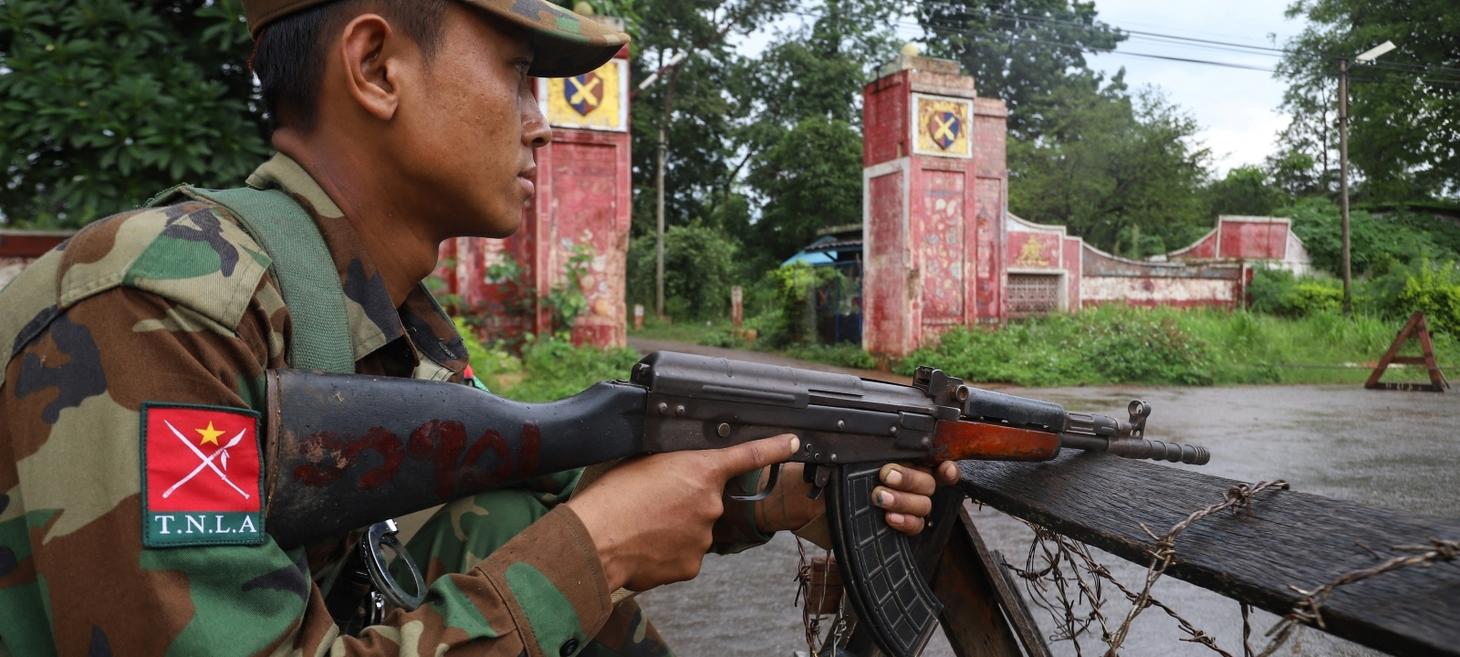
Three Brotherhood Alliance says agreed to four-day ceasefire with junta in Shan State
The Three Brotherhood Alliance, comprising the Arakan Army, the Myanmar National Democratic Alliance Army, and the Ta’ang National Liberation Army, announced a four-day ceasefire with the Myanmar junta in northern Shan State from July 14 to July 18, following recent territorial gains along a strategic highway leading to China. This ceasefire, coinciding with the Communist Party of China's Third Plenum, underscores China's influential role in mediating conflicts involving ethnic armed groups near its border. Despite the truce, fighting continues in neighboring Mandalay Region, highlighting the complex dynamics of Myanmar's ongoing conflict and the strategic interests involved.
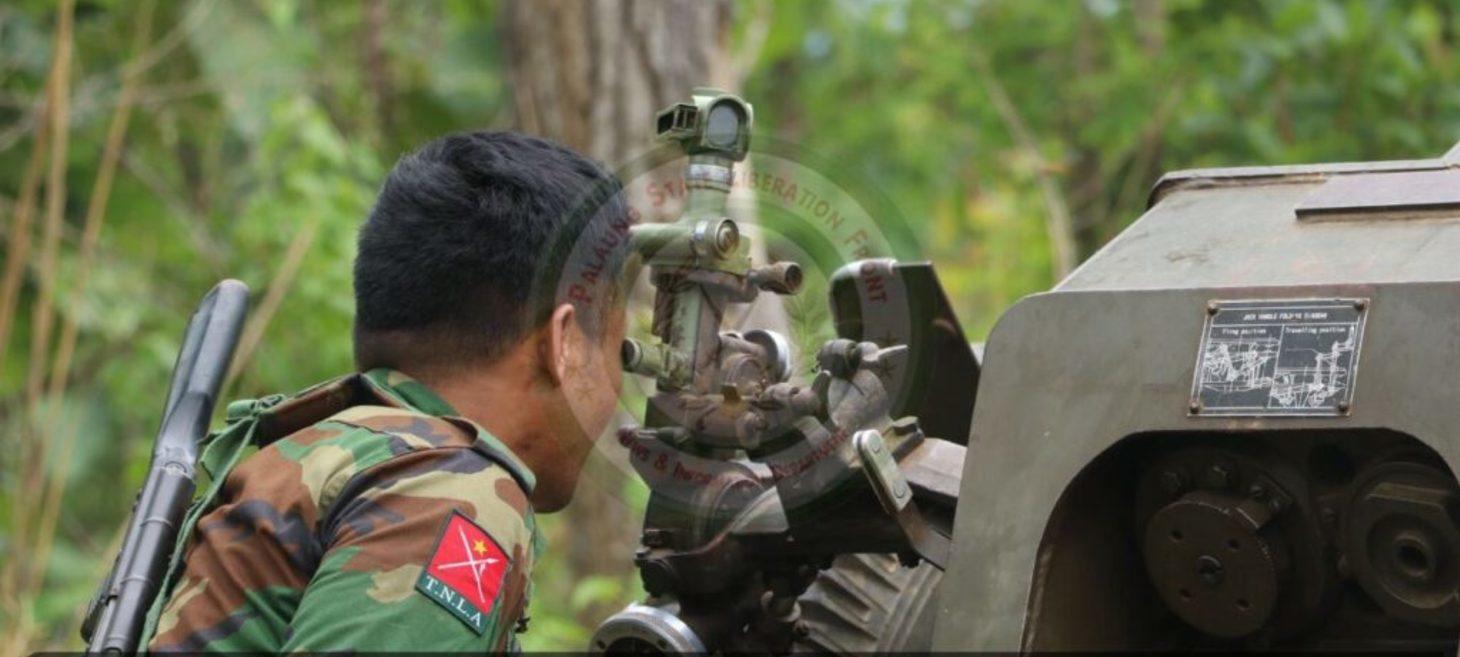
Anti-junta forces seize missile base in northern Shan State
Early Wednesday morning, anti-junta forces, led by the Ta’ang National Liberation Army (TNLA) and supported by the People’s Defence Forces (PDF) and the Danu People’s Liberation Front, made significant strides in northern Shan State by capturing a junta missile battalion base near Nawnghkio Township, bringing them closer to full control of the area. This victory marks the latest in a series of successes against the military, including the seizure of multiple military and police outposts, and establishes the TNLA and its allies as the dominant force in Nawnghkio's urban center, despite some peripheral areas remaining under military control. The TNLA's offensive is part of Operation 1027, a broader effort against the Myanmar military that has seen the capture of strategic bases and townships across northern Shan State and Mandalay Region. Amidst ongoing battles and the displacement of locals, the TNLA is working to establish administrative control in Nawnghkio, detaining suspected looters and informants, while facing the challenge of managing the town's reduced population and securing areas still held by the junta. This development highlights the escalating conflict and the shifting dynamics of control in Myanmar's ongoing struggle against the military regime.
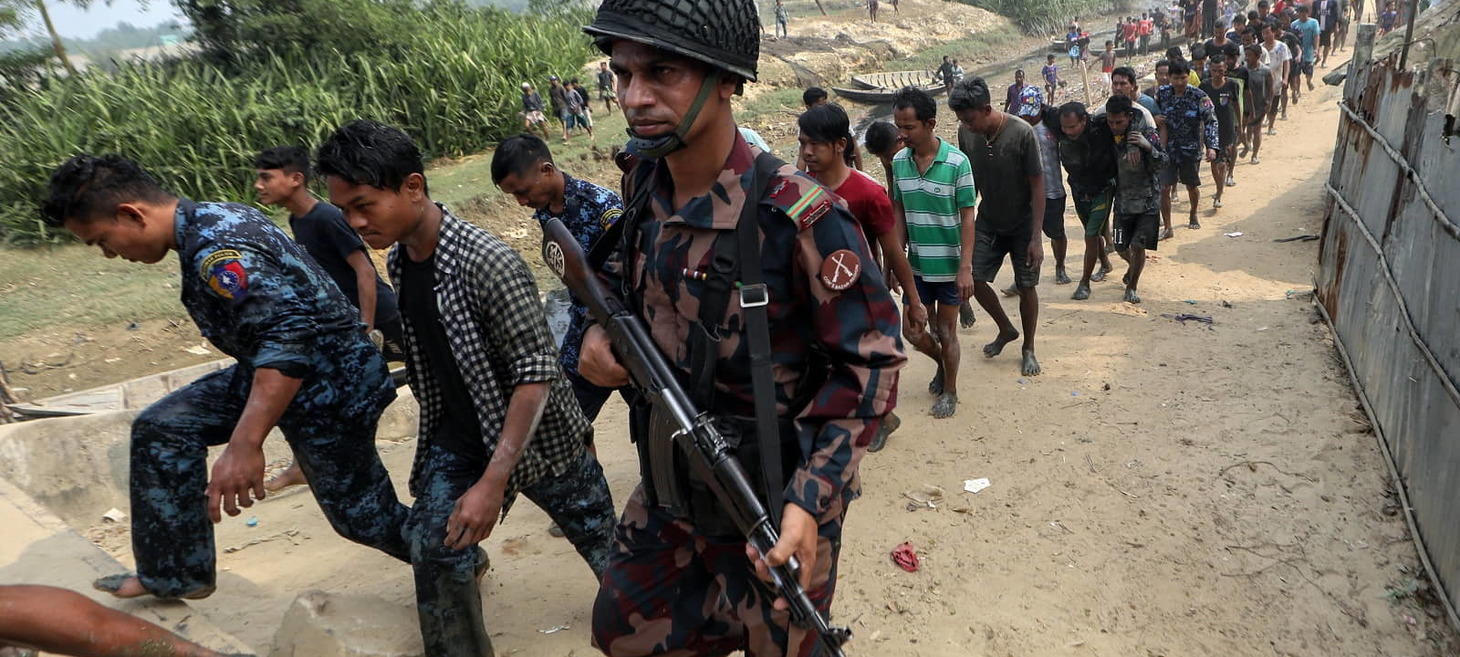
Regime collapse in Myanmar’s Rakhine
The Arakan Army (AA) has made significant advancements in Myanmar's civil conflict, recently capturing Thandwe airport and the Ngapali Beach region in Southern Rakhine State after weeks of intense clashes with junta forces, marking a strategic victory in their ongoing resistance against the military State Administration Council (SAC). This success comes amid the AA's participation in Operation 1027, part of the Three Brotherhood Alliance's efforts to seize territory across Northern Shan State and Mandalay Region. The SAC's loss of major base areas, including key townships and strategic locations, has been met with brutal scorched earth tactics, leading to civilian atrocities and destruction of infrastructure. The AA's offensive has also raised concerns over communal tensions between ethnic Rakhine and Rohingya Muslims, particularly in areas bordering Bangladesh where the SAC has forcibly recruited Rohingya men. Despite these challenges, the AA aims for "confederation" status rather than full autonomy, and its recent victories suggest potential control over 50 to 75% of Rakhine State. This expansion poses administrative challenges, especially regarding stateless Rohingya populations, but the AA has attempted to establish governance structures and services, adapting former SAC systems while introducing new local governance networks. Their military achievements raise hopes for expelling Myanmar military forces from Rakhine State entirely by year-end, setting the stage for future struggles to maintain control and manage the region effectively.
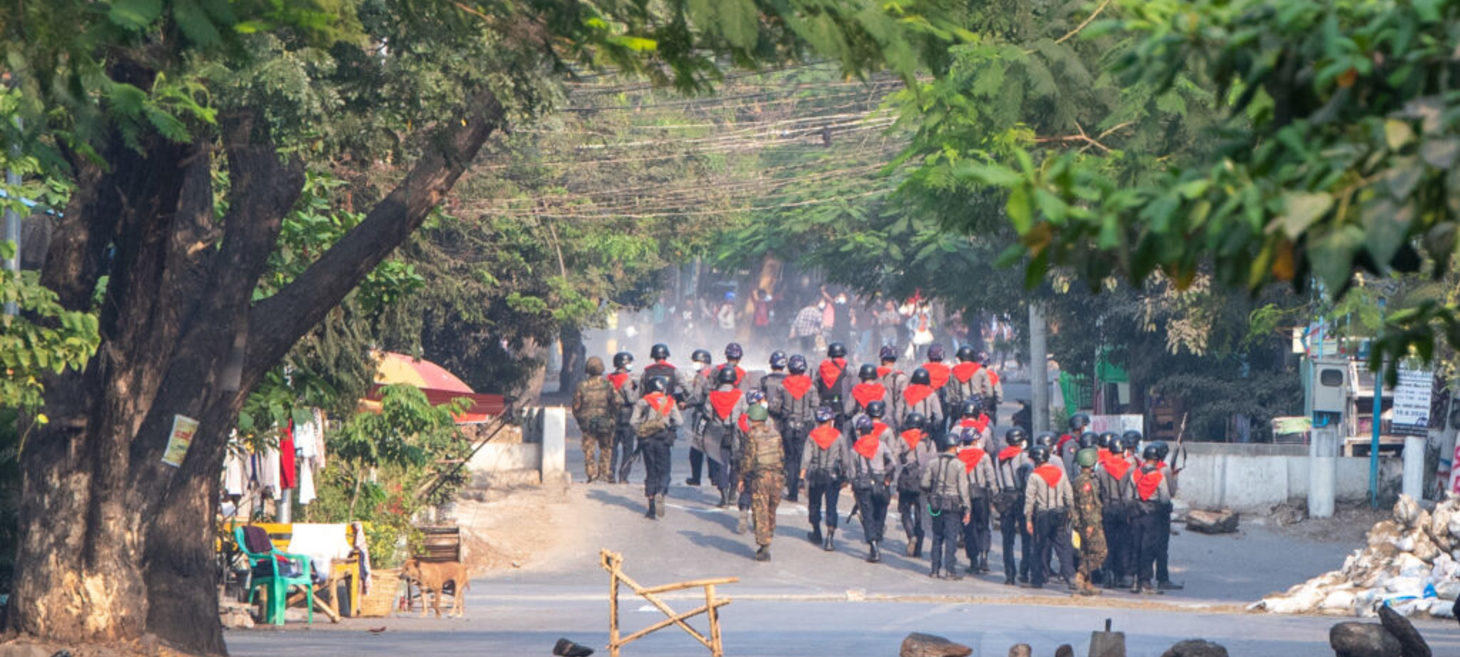
Security tightened in Mandalay as opponents of Myanmar regime draw near
As anti-regime forces advance towards Mandalay, Myanmar's security measures in the city have been tightened, with residents noting increased military presence and stricter controls at entry points requiring national registration cards. The recent capture of a junta missile battalion base near Nawngkhio Township by the Ta’ang National Liberation Army (TNLA) and allied groups, along with ongoing clashes north of Mandalay, has prompted the regime to bolster defenses around strategic locations like Mandalay Palace and Chanayethazan Township, deploying additional soldiers and setting up heavy artillery on Mandalay Hill. Reports indicate a spread of military occupation into previously unoccupied areas, including villages in Patheingyi Township, suggesting preparations against potential attacks from resistance forces. Amidst these tensions, while Mandalay has become a refuge for internally displaced persons from Sagaing Region and Shan State, some locals are now considering leaving due to fears of imminent conflict reaching the urban center. This escalation underscores the growing pressure on the regime to secure key areas as opposition forces continue to gain ground, highlighting the fluid and increasingly volatile nature of the conflict across Myanmar.
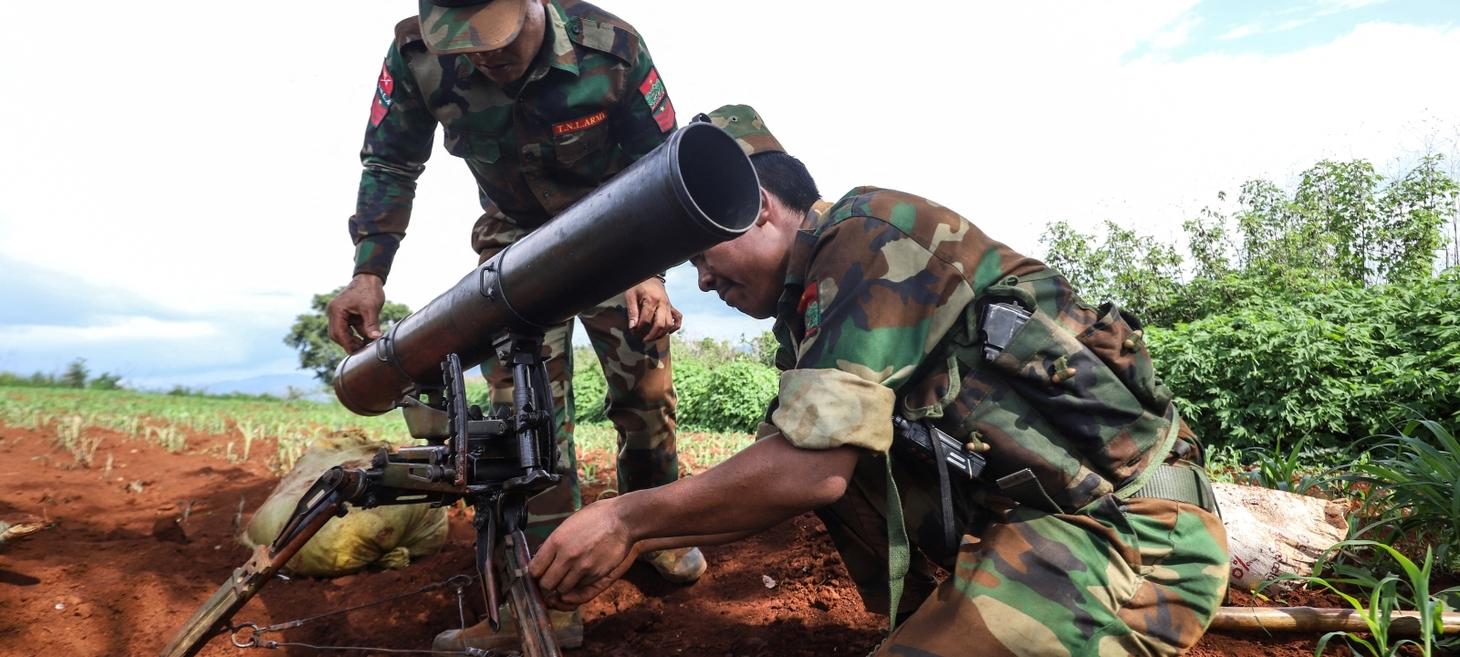
Myanmar ethnic armed group claims control of town on key highway to China
Ethnic minority fighters in Myanmar, part of the Three Brotherhood Alliance, have captured the town of Nawnghkio along a crucial trade highway to China, marking a significant setback for the military amidst ongoing clashes in northern Shan State. This development follows the collapse of a Beijing-brokered truce and indicates the alliance's renewed offensive against the junta, with the Ta’ang National Liberation Army (TNLA) confirming their control over Nawnghkio and presence in Lashio, where the junta's North Eastern Command is headquartered. Despite military airstrikes and civilian casualties, the TNLA's advances, alongside those of the Arakan Army and the Myanmar National Democratic Alliance Army, underscore the escalating conflict in areas strategic to China's interests. The situation has prompted residents to flee, highlighting the broader struggle of ethnic armed groups for autonomy and resource control since Myanmar's independence, with newer People's Defence Forces also engaging the military post-coup. Amidst this, junta deputy Vice-Senior General Soe Win's visit to China for security discussions underscores Beijing's complex role, balancing support for the regime with ties to ethnic groups near its border, reflecting the intricate dynamics of Myanmar's conflict and China's strategic considerations in the region.
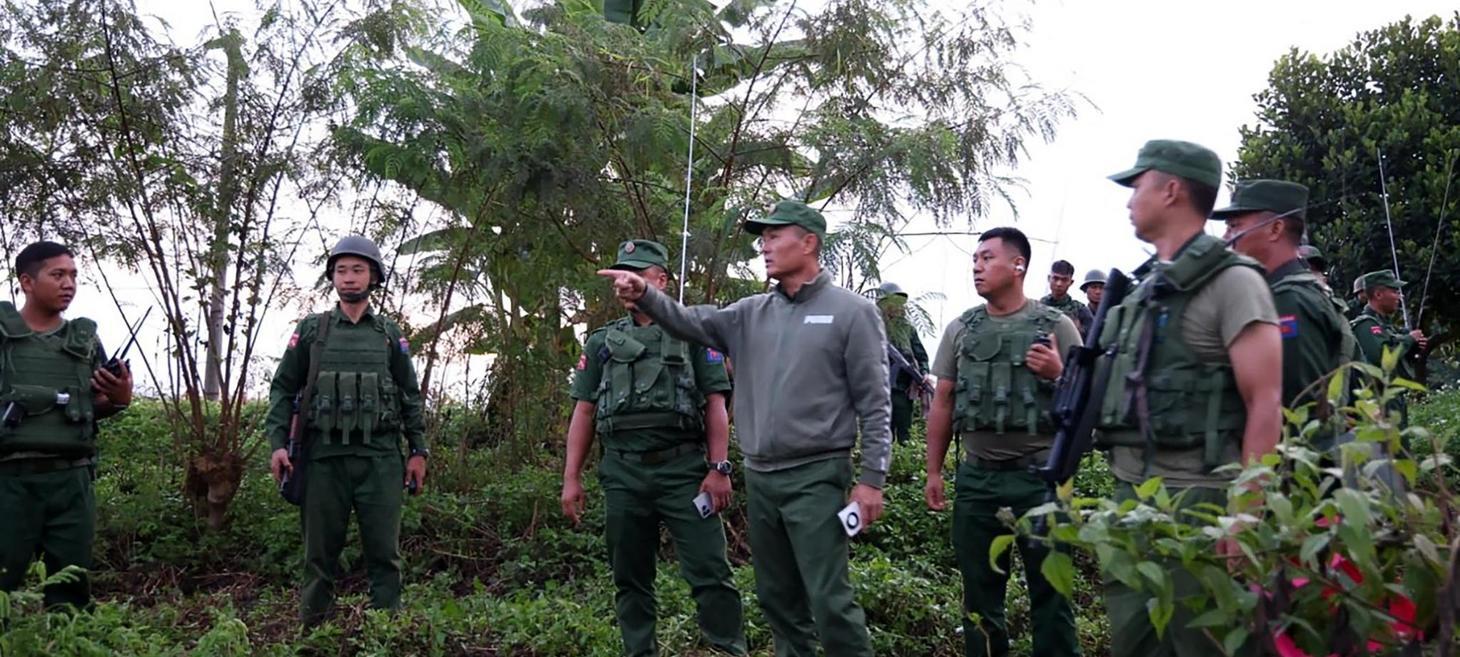
Anti-junta fighters push towards northern Shan State’s largest city
Clashes in northern Shan State have intensified as anti-junta fighters, including the Myanmar National Democratic Alliance Army (MNDAA) and its allies, temporarily seized an army battalion base near Lashio, bringing them closer to controlling the strategically important city. Despite military airstrikes and shelling to retake the base, the MNDAA claims progress towards capturing Lashio, a key administrative and military hub. Local accounts vary, with some confirming the base's recapture by the military and others reporting ongoing battles. The situation in Lashio, home to the Northeastern Regional Military Command headquarters, is critical, with the MNDAA and allies aiming to secure the city and surrounding areas, including the IB 291 base. Amidst the fighting, civilian casualties and displacement are rising, with over 20 deaths reported and a third of the population fleeing. The MNDAA, part of the Brotherhood Alliance, continues its offensive alongside the Ta’ang National Liberation Army (TNLA) and Arakan Army, resuming Operation 1027 after a ceasefire collapse. This escalation, marked by heavy artillery and airstrikes, has led to a humanitarian crisis, with residents facing shortages and limited access to medical care. The military's reinforcement and fortification efforts in Lashio highlight the city's strategic value, as control over it could shift the balance of power in the region, impacting trade routes and the broader conflict dynamics. The ongoing violence underscores the complex and fluid nature of Myanmar's civil war, with significant implications for the control of border areas and the potential for further escalation as anti-junta forces press their advantage, seeking to capture remaining military strongholds and consolidate gains made since the operation's restart.
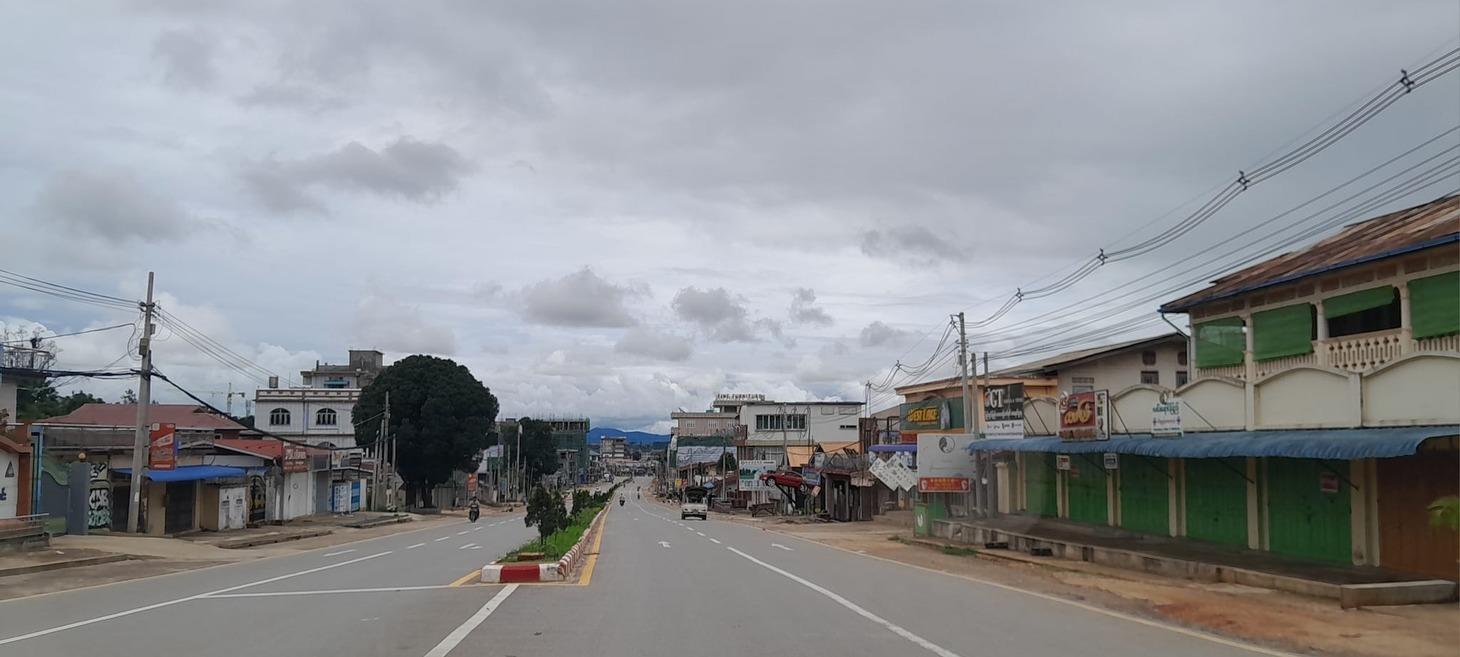
Junta Strengthens Defenses in Lashio Amidst Ceasefire Tensions
In response to recent conflicts in Lashio Township, northern Shan State, the military junta has significantly escalated its defensive measures by airlifting hundreds of reinforcement troops and hundreds of thousands of empty sandbags for bunker fortification. This strategic move follows a temporary ceasefire declared by the Three Brotherhood Alliance, allowing the junta to strengthen its positions in anticipation of potential renewed clashes. Despite the ceasefire, reports indicate that fighting may have resumed around Lashio, underscoring the volatile nature of the situation and the junta's proactive efforts to secure its holdings amidst ongoing instability.
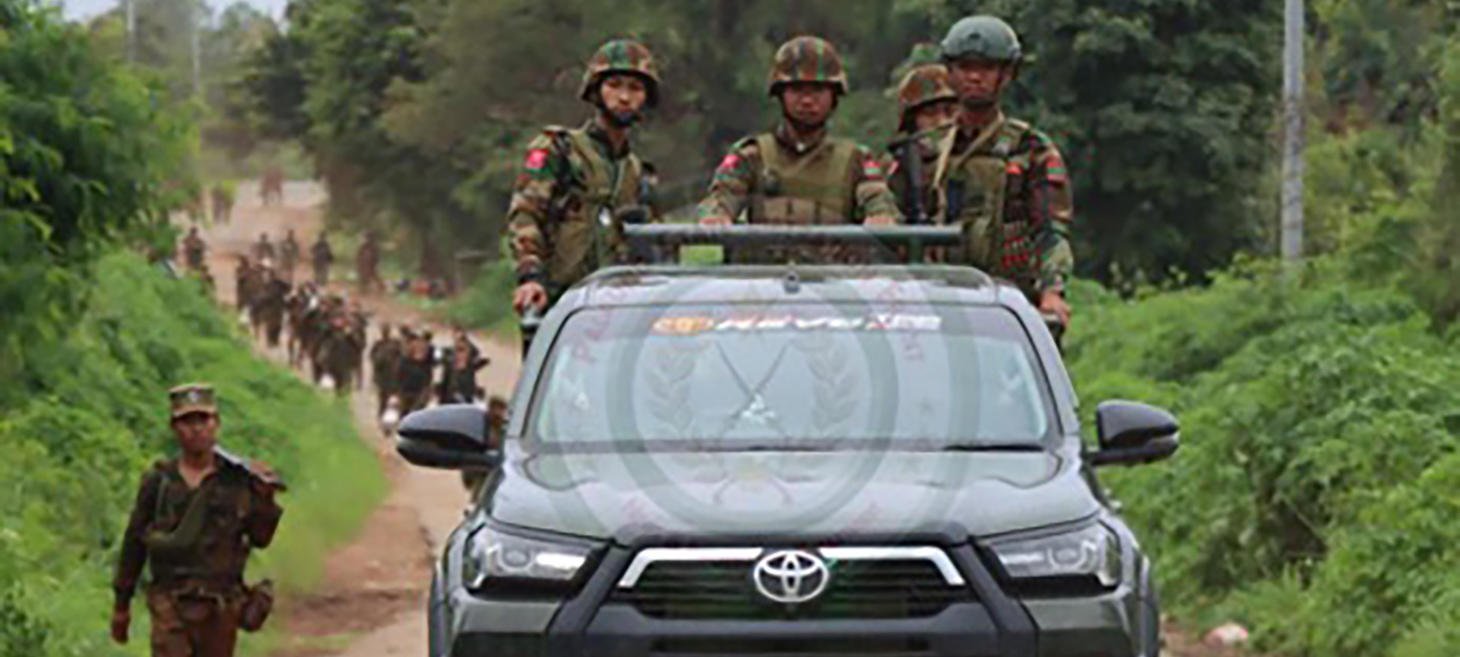
Myanmar Junta Shatters Truce as Battle for Northern Shan Capital Intensifies
Despite a four-day unilateral ceasefire declared by the ethnic Brotherhood Alliance in northern Shan State, intense clashes continue, particularly in Lashio, with reports of civilian casualties from shelling and gunfire. The ceasefire, coinciding with a meeting of the Communist Party of China, has not halted the violence, as evidenced by ongoing battles at military headquarters and residential areas, leading to deaths and injuries among civilians, including monks. The junta has responded with airstrikes and reinforcements, escalating the conflict amidst attempts by the Brotherhood Alliance and local resistance groups to seize control of strategic locations, highlighting the complex and volatile situation in the region.
Conscription
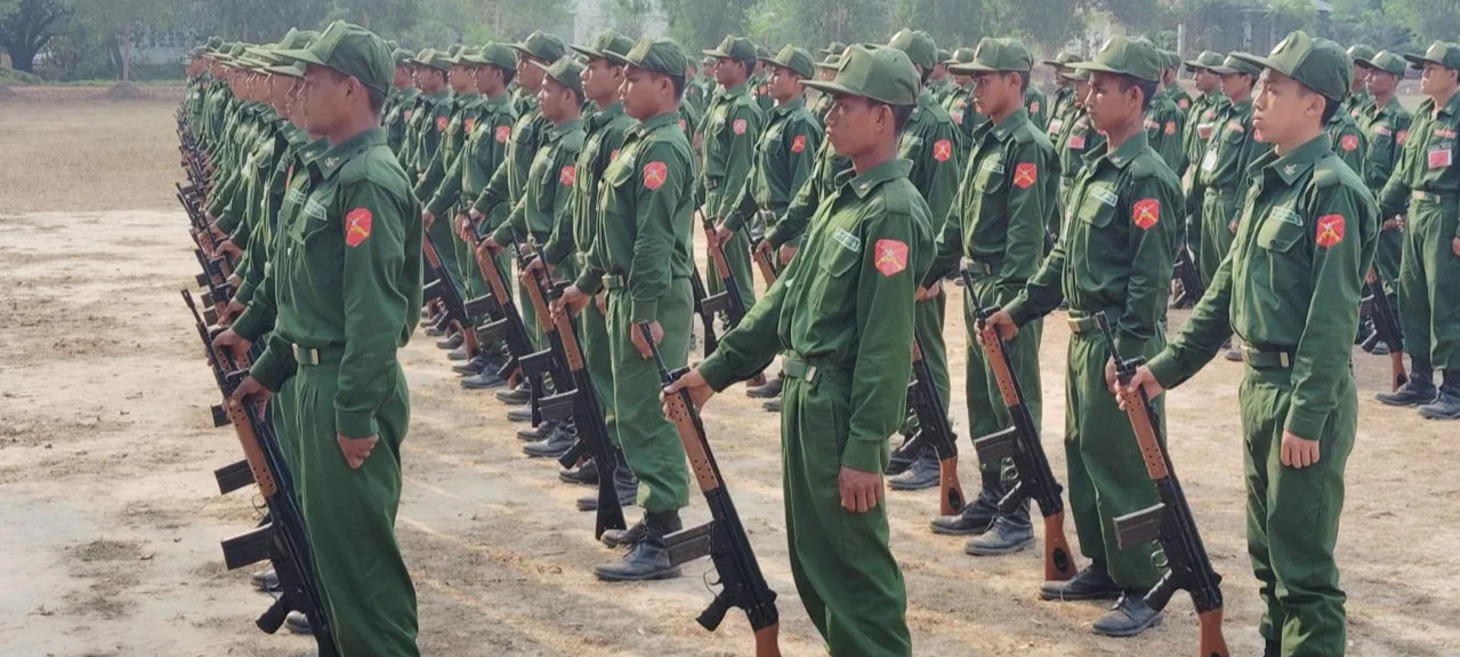
Junta Deploys Newly Trained Conscripts for Security Operations in Ye Township
The military junta in Myanmar has started deploying newly trained conscripts for area clearance operations in Ye Township, Mon State, the sole area under martial law, as part of efforts to bolster its presence and control. Following their training completion in late June, these recruits have been dispatched to various strategic locations, including Ye Township, where they join existing forces in conducting intensive security checks and patrols, causing significant disruption to the local populace. This move marks an escalation in the junta's efforts to regain control over areas lost to resistance forces, highlighting the ongoing conflict and the strategic importance of Ye Township amidst broader tensions and challenges the regime faces.
Crime & Narcotics
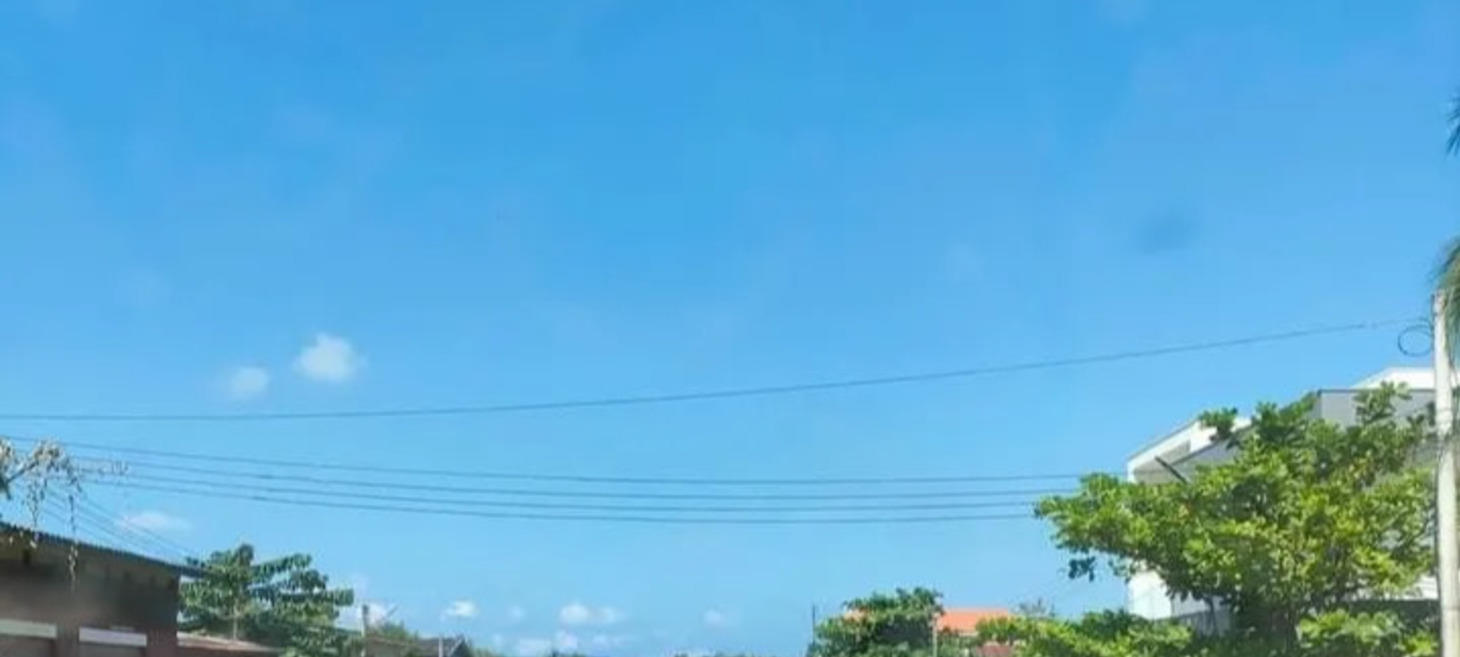
Thousands of Chinese Nationals Run Rampant Gambling Operations in Payathonzu
In Payathonzu, a town in Karen State near the Thailand-Myanmar border, there has been a significant increase in Chinese nationals setting up widespread gambling operations. This surge, beginning in May, follows a directive from the Border Guard Force (BGF) for foreigners involved in gambling and telecom scams in nearby Shwe Kokko to relocate by October. These Chinese entrepreneurs are not only renting accommodations at high prices but also purchasing land to build luxury homes. They have entered Payathonzu either through Thailand with proper visas or via arranged transport from Myawaddy, facilitated by payments to BGF and the Democratic Karen Benevolent Army (DKBA). The gambling industry in Payathonzu, now dominated by Chinese operators and their local affiliates, has raised concerns among residents and local businessmen about its impact on the town's economy and security, with reports of daily burglaries and the easy accessibility of gambling dens attracting a broad demographic, including manual laborers and youth.
Economy
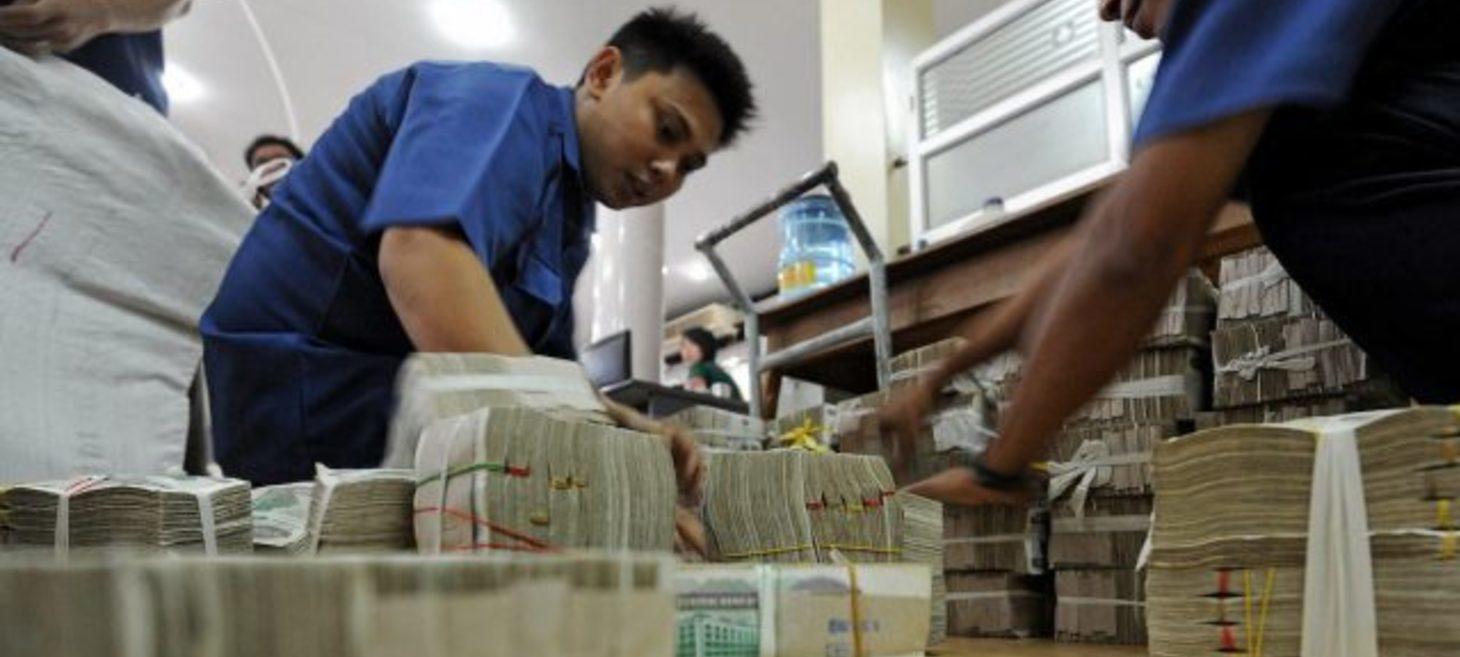
Myanmar’s Military Funds Its War through Forex Policy
Myanmar's military regime, since seizing power in 2021, has increasingly turned to foreign exchange policy as a critical source of funding, rivaling revenues from natural resources and military companies. By administratively fixing forex rates and mandating conversion at these rates, the regime extracts significant rents, with exporters losing a substantial portion of their earnings due to the disparity between official and market rates. This policy shift has major economic implications, potentially accelerating Myanmar's economic decline. The Central Bank of Myanmar's expanded control over forex transactions, including the launch of a trading platform that requires detailed information from companies seeking to purchase forex, gives the regime unprecedented power over the economy. Despite some forex being allocated to private entities and importers at favorable rates, the overall effect of these policies is to centralize control and profit within the military regime at the expense of broader economic activity. As natural gas revenues are projected to decline sharply, understanding the regime's reliance on forex policies becomes crucial for assessing its financial sustainability and its impact on Myanmar's economy.
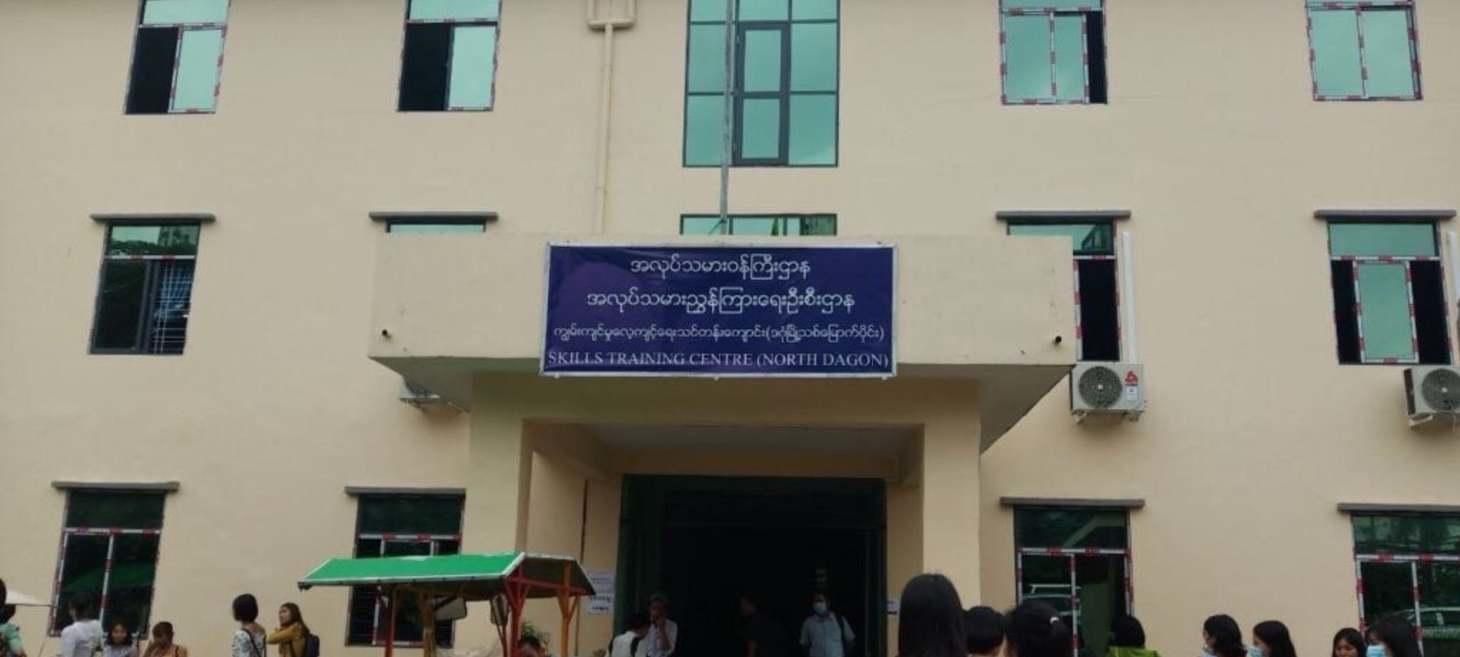
Myanmar junta pressures overseas employment agencies over worker remittances
The Myanmar junta is enforcing a policy requiring overseas workers to remit 25% of their income back to their families in Myanmar through junta-approved channels, with threats of shutting down employment agencies that fail to comply. This mandate, discussed at a meeting between the Ministry of Labour and the Myanmar Overseas Employment Agency Association, aims to ensure workers contribute financially to the state. Despite the inability of agencies to enforce remittances, they are tasked with conveying the junta's demands and reporting compliance. Workers are asked to provide proof of remittances, with some expressing caution about using official banks due to potential support for the regime. This policy, part of broader measures including taxation on foreign earnings, has faced criticism for potentially encouraging irregular migration and exploiting migrant workers.
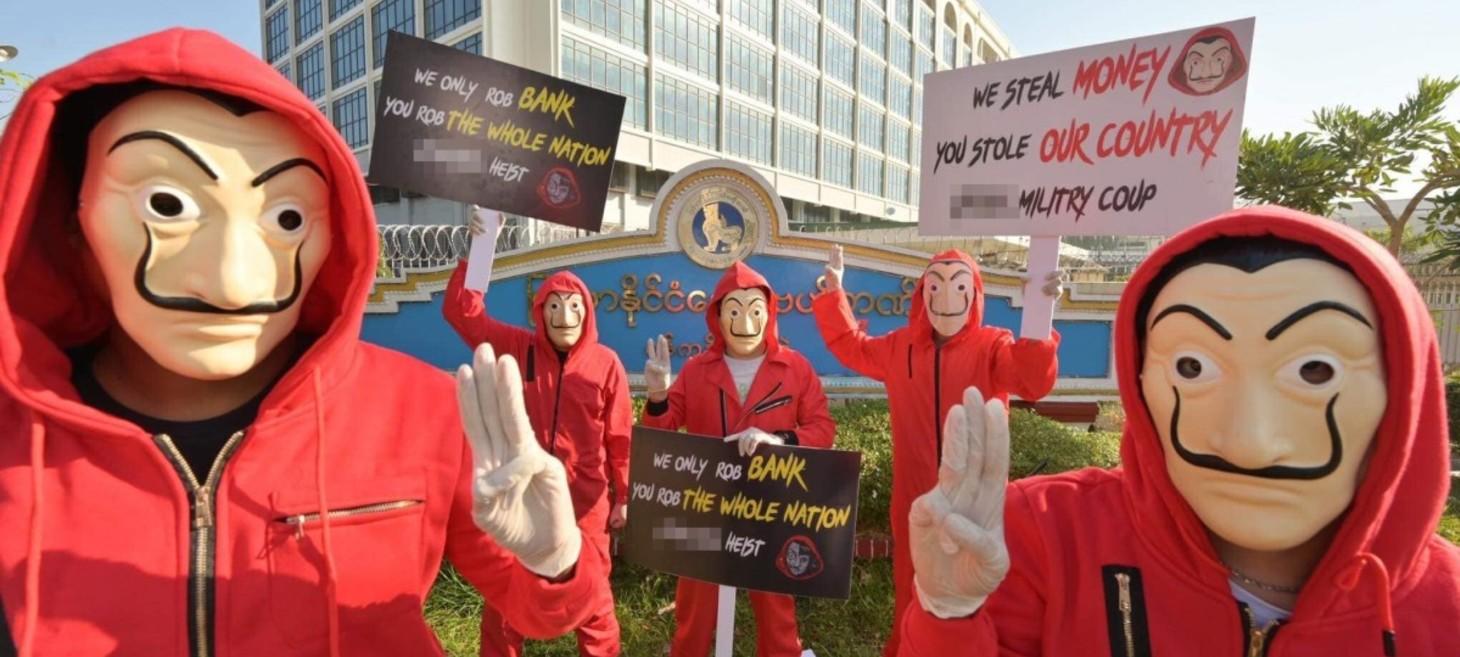
Myanmar Currency Plunges, Gold Price Soars Amid Junta’s Botched Interventions
Amid the junta's failed attempts to stabilize Myanmar's economy, the kyat has plunged to 4,800 per dollar, and gold prices have soared to over 5.8 million kyats per tical (16.33 grams) for 24K gold, influenced by both international market trends and domestic economic uncertainties. Public trust in private banks has eroded following the regime's punitive actions against them, leading to widespread withdrawals and investments in gold and dollars. This crisis, exacerbated by the junta's arrests of gold and currency dealers for alleged market manipulation, reflects the deepening economic turmoil and loss of confidence in the regime's ability to manage the country's finances effectively.
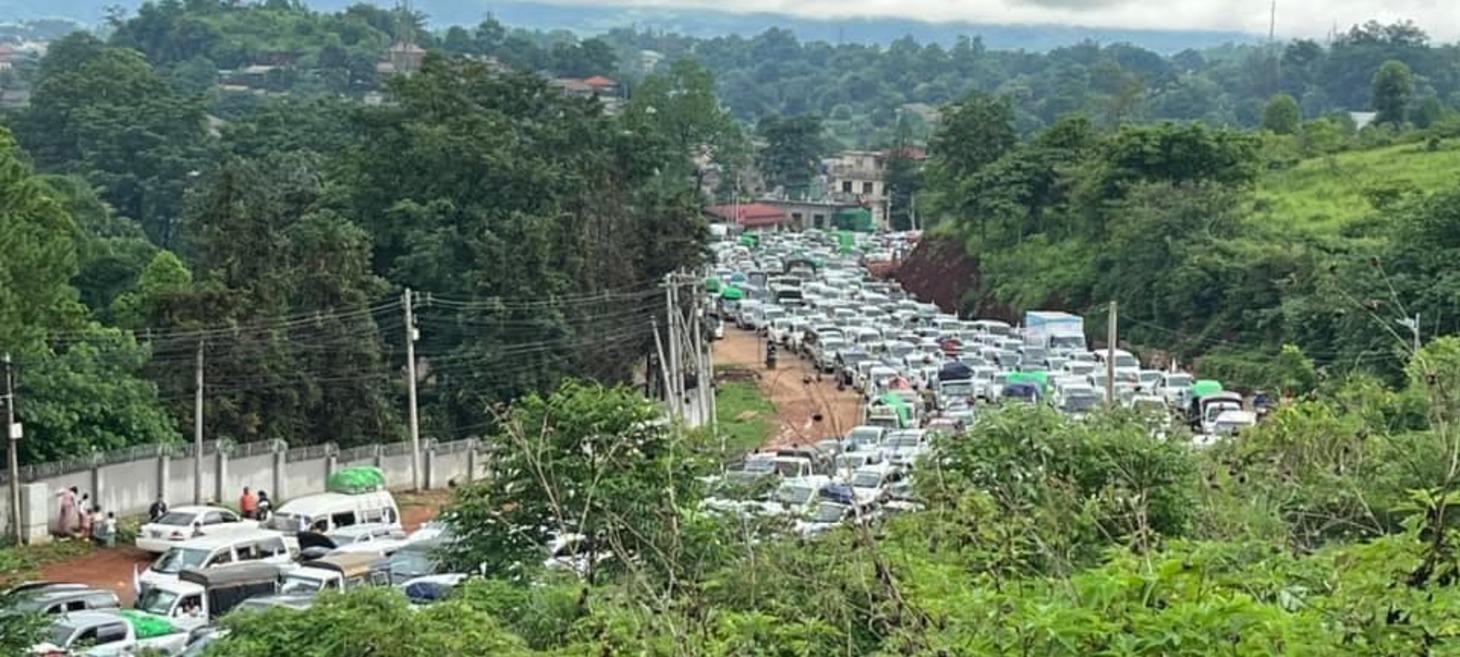
Myanmar Conflict Escalates, Thai Companies Pull Out
The escalating conflict in Myanmar between the military government and opposition forces has led to a significant withdrawal of Thai investments, with Thai companies pulling out and divesting approximately 7 billion dollars. This shift has caused Thai investment in Myanmar to drop from the third to the fifth position, with a reduction in project numbers and investment value. The ongoing violence has also impacted trade, with a 10.46% decrease in trade value between Thailand and Myanmar from January to May 2024 compared to the same period last year. Thai exports and imports have both seen declines due to lengthy import licensing procedures in Myanmar. In response to its growing trade deficit, the Myanmar government announced stricter measures against goods entering without proper licenses, affecting various categories including fertilizers, steel, and solar products. Despite these challenges, Myanmar's economy is projected to grow by 1.5% in 2024, with a notable decrease in international trade but an increase in exports leading to a trade surplus.
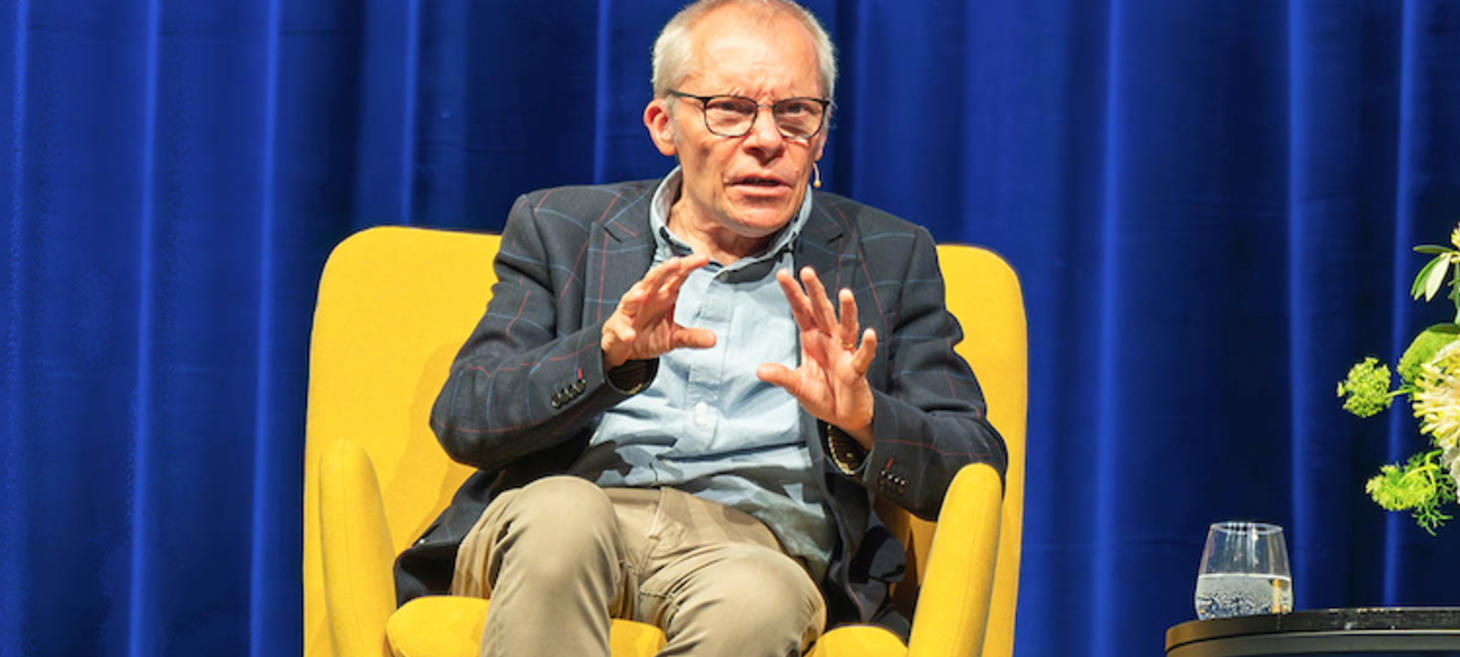
Suu Kyi Adviser Calls For Sanctions on Myanmar’s Central Bank
Sean Turnell, an Australian professor and former economic adviser to Aung San Suu Kyi's government, advocates for sanctions on the Central Bank of Myanmar (CBM) to limit the junta's financial resources, arguing it's crucial for funding the military's oppressive actions and evading international sanctions. He highlights the CBM's role in financing atrocities and enabling human rights abuses, comparing it to sanctioned central banks in Russia, Iran, and Afghanistan. Turnell's call comes as the junta intensifies aerial attacks on civilians, with nearly seven airstrikes daily reported from January to April, causing significant civilian casualties and damage to infrastructure. The CBM, by directing financial support to the military and facilitating sanctions evasion, has become a key tool for the regime, with the U.S. already freezing its assets at the New York Federal Reserve post-coup. Turnell urges formal sanctions on the CBM and international cooperation to extend these measures, despite concerns over potential harm to ordinary citizens, emphasizing the bank's role in the junta's war machine and the necessity of removing the military for economic stabilization. This appeal underscores the critical role of financial institutions in the ongoing conflict and the strategic importance of targeting them to curb the regime's resources, alongside the broader context of the junta's economic mismanagement and reliance on the CBM for funding its operations and securing foreign exchange amidst escalating violence and international pressure.
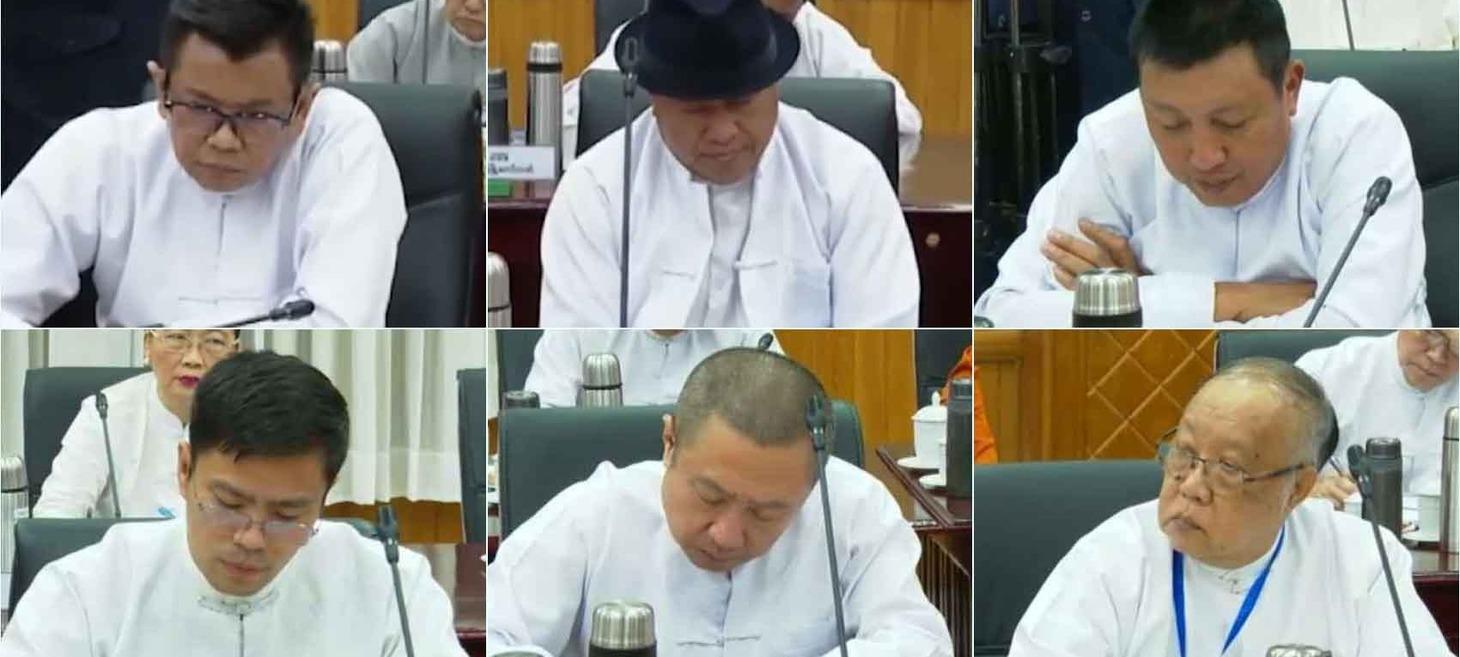
Myanmar’s Generals Berate And Scold Bankers as Financial Crisis Deepens
In a one-sided meeting in Naypyitaw, senior junta officials berated Myanmar's top bankers, accusing them of causing inflation and the currency's plunge, marking a new, potentially irreversible stage in the country's financial crisis. The meeting, described as a "court martial" rather than a discussion, saw junta officials, including Lieutenant General Aung Lin Dwe and others, blame bankers for the economic catastrophe since the 2021 coup, threatening action for violating regulations and damaging financial stability. This occurred as the kyat further devalued and gold prices soared, with banks facing scrutiny for exceeding loan caps and being held responsible for the crisis exacerbated by the regime's failed foreign exchange rate control attempts. The absence of Yoma Bank's executive chair, detained for alleged financial violations, and the presence of other major bank executives underscored the regime's tightening grip on the financial sector. Post-meeting, the kyat lost more value, and gold prices increased, while trust in private banks plummeted, leading to stricter withdrawal limits amid fears of a banking collapse. The junta's response to the crisis, including accusing customers discussing withdrawal limits of spreading rumors, highlights the escalating economic turmoil and the regime's attempts to control the narrative, reflecting the deepening impact of the political instability on Myanmar's financial system and the broader economy, with no clear resolution in sight.
Ethnic Issues
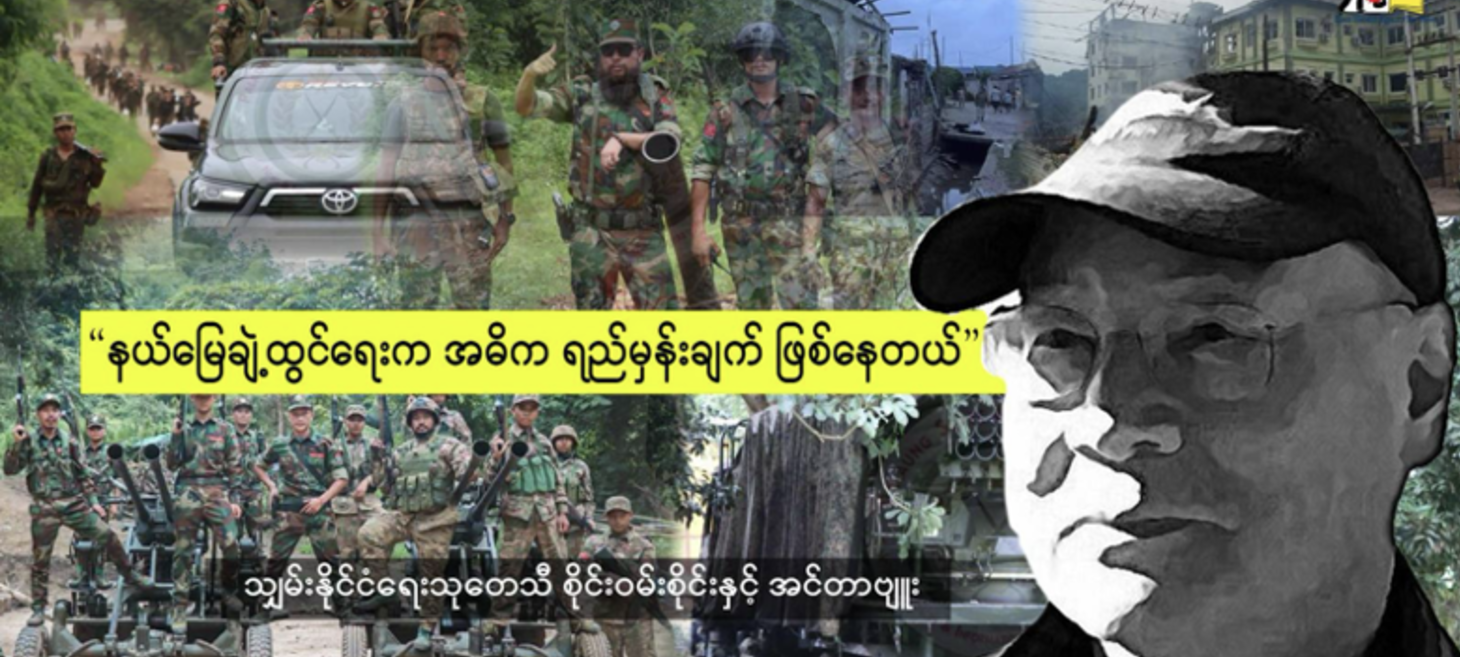
The NUG has dubbed it the “Shan-Man” operation.
"Operation 1027," a military campaign in northern Shan State involving the Three Brotherhood Alliance (3BHA), Mandalay-PDF, Mogok Strategy, and Danu People Liberation Army (DPLA), resumed its second phase on June 25, aiming to combat the military dictatorship and eliminate online scams. However, the operation has evolved into territorial disputes among ethnic armed groups, particularly involving the Ta’ang National Liberation Army (TNLA), Kachin Independence Army (KIA), Shan State Progressive Party (SSPP), and Myanmar National Democratic Alliance Army (MNDAA). The TNLA's primary goal appears to be territorial expansion rather than the stated objective of removing the junta, leading to conflicts with other groups. To resolve these issues, abandoning territorial ambitions and adopting peaceful coexistence as shared goals are suggested. Despite the challenges, the operation's impact on establishing a federal democratic union remains uncertain, with skepticism among some revolutionary forces regarding the TNLA's intentions and the overall unity of the anti-junta forces.
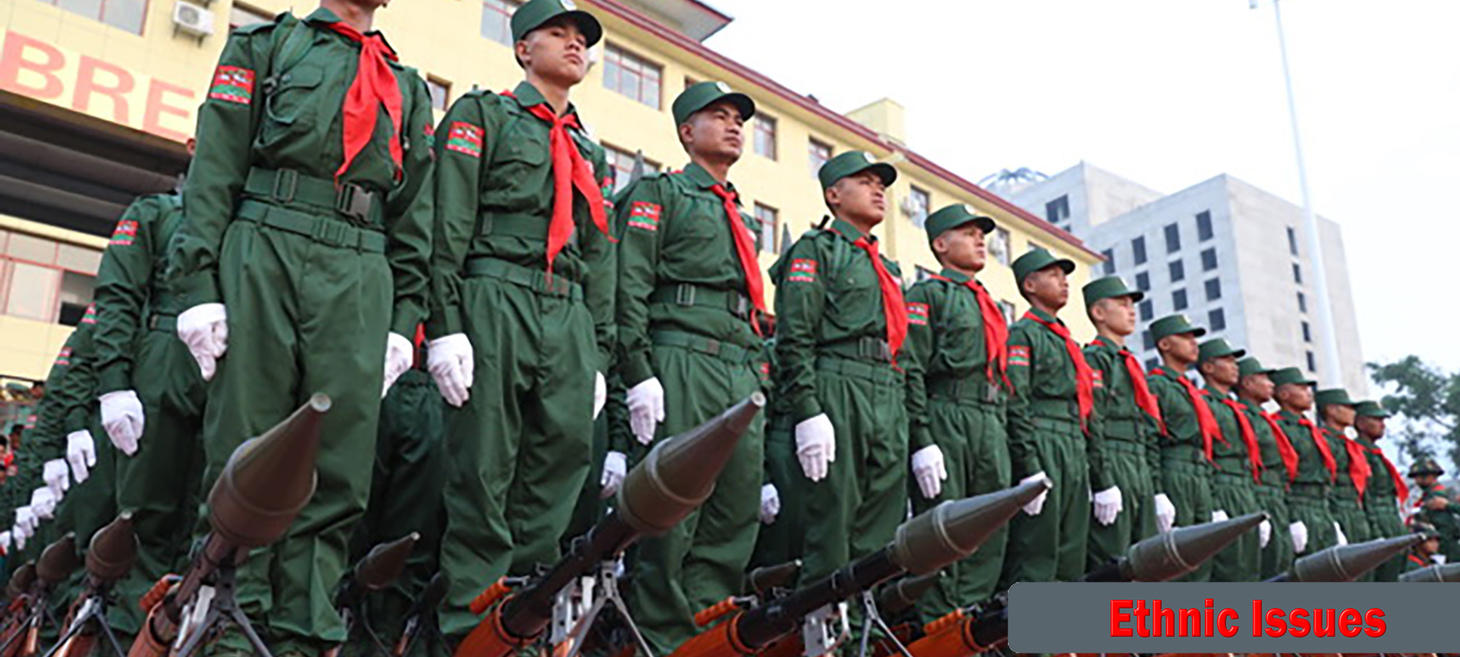
Wa Deploys Troops to Prevent Spread of Shan Fighting
The United Wa State Army (UWSA) has deployed troops to Tangyan town in northern Shan State to prevent the spread of fighting between Myanmar's junta and the Brotherhood Alliance, which includes the Ta’ang National Liberation Army (TNLA) and Myanmar National Democratic Alliance Army (MNDAA). This move follows negotiations with the regime and appeals from Tangyan residents for protection against escalating conflicts. The UWSA, maintaining neutrality and seeking peace, believes its intervention will contribute positively to stability in the area. Amidst ongoing clashes near Lashio, where the regime's Northeastern Command is headquartered, the TNLA recently attacked regime outposts near Tangyan Township. The UWSA, part of the Federal Political Negotiation and Consultative Committee formed in 2017, has historically enjoyed autonomy and has engaged in peace talks hosted by the junta since the 2021 coup, adhering to a ceasefire agreement made in 1989.

UWSA’s Move May Link to China’s Economic Interests
Recent troop movements by the United Wa State Army (UWSA) and the Shan State Progress Party/Shan State Army (SSPP/SSA) have introduced unexpected shifts in Myanmar's complex civil war, temporarily halting the conflict between the Myanmar military and the Three Brotherhood Alliance (3BHA), comprised of the Ta’ang National Liberation Army (TNLA) and the Myanmar National Democratic Alliance Army (MNDAA). The UWSA's reinforcement in Tangyan Township, ostensibly for security reasons, raises suspicions among observers about underlying motives, possibly aiming to assert control over the area without direct confrontation, leveraging its leadership in the Federal Political Negotiating and Consultative Committee (FPNCC), which includes the MNDAA and TNLA. China's stance is noteworthy; despite dissatisfaction with the military's handling of border issues, it likely opposes regime collapse, viewing revolutionary groups as incapable of outright victory. The UWSA and SSPP/SSA's maneuvers may align with China's strategy to secure alternative trade routes disrupted by the conflict, suggesting a geopolitical maneuver to maintain influence amidst the chaos. While the motivations behind the UWSA's troop movement and China's exact objectives remain unclear, these developments highlight the evolving alliances and intricate geopolitical strategies shaping Myanmar's ongoing strife, with potential implications for the balance of power and future negotiations.
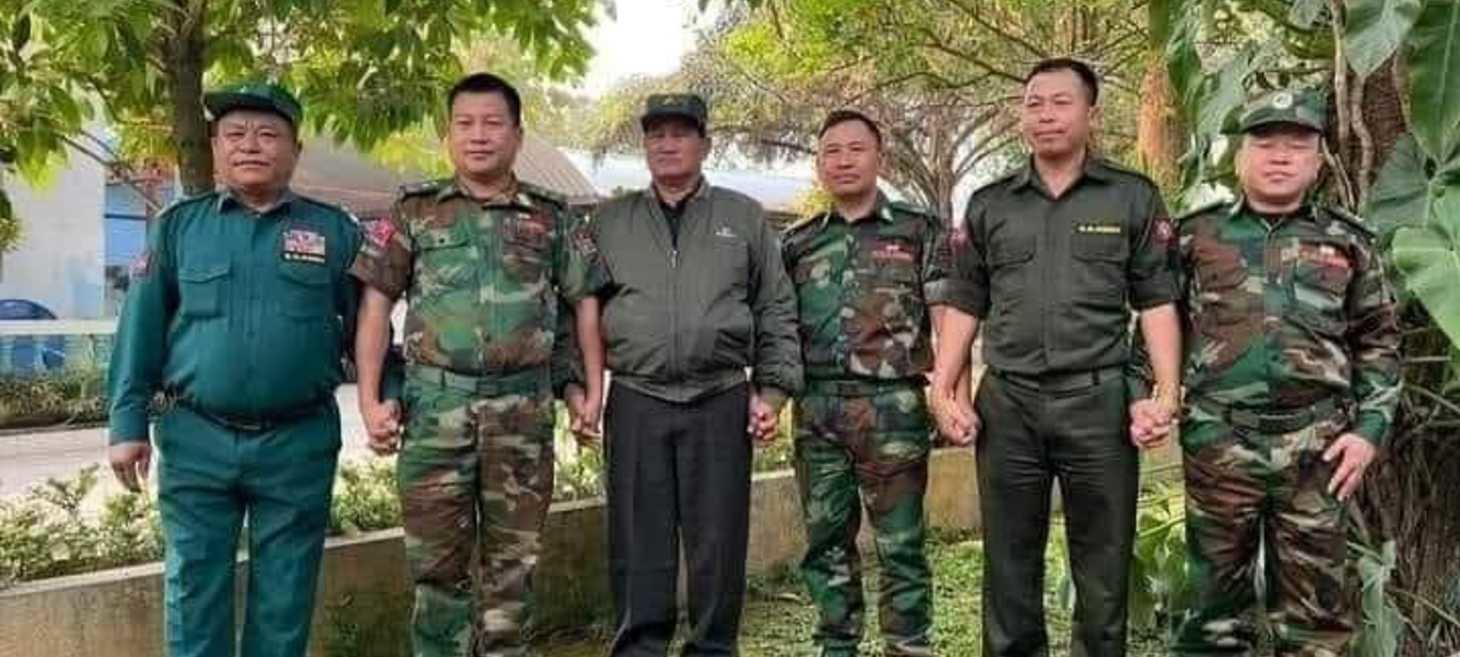
TLNA and SSPP Leaders Convene at UWSA Headquarters to Resolve Disputes
The Shan State Progress Party/Shan State Army (SSPP/SSA) and the Ta’ang National Liberation Army (TNLA), despite being allies, convened in Panghsang Town, the United Wa State Army (UWSA) headquarters, to address their escalating military tensions, particularly in areas like Nawngping Village Tract in Kyaukme Township and Kyangin Village in Hsipaw Township since July 5. This meeting, led by Lieutenant-General Sao Khun Hseng of SSPP and Tar Aik Bong of TNLA, aimed to resolve disputes amid accusations by TNLA of SSPP interference in their operations against junta forces during 'Operation 1027.' The tensions escalated after an ambush by SSPP resulted in significant casualties among TNLA troops, prompting calls for UWSA-led Federal Political Negotiation and Consultative Committee intervention. Amidst these tensions, UWSA deployed thousands of troops to Tangyan Town, while SSPP increased its military presence near Lashio, aiming to prevent conflict spread. These developments underscore the complex dynamics within the anti-junta alliance and the strategic maneuvers by ethnic armed groups amidst Myanmar's ongoing civil war, highlighting the intricate balance of power and alliances in the region.
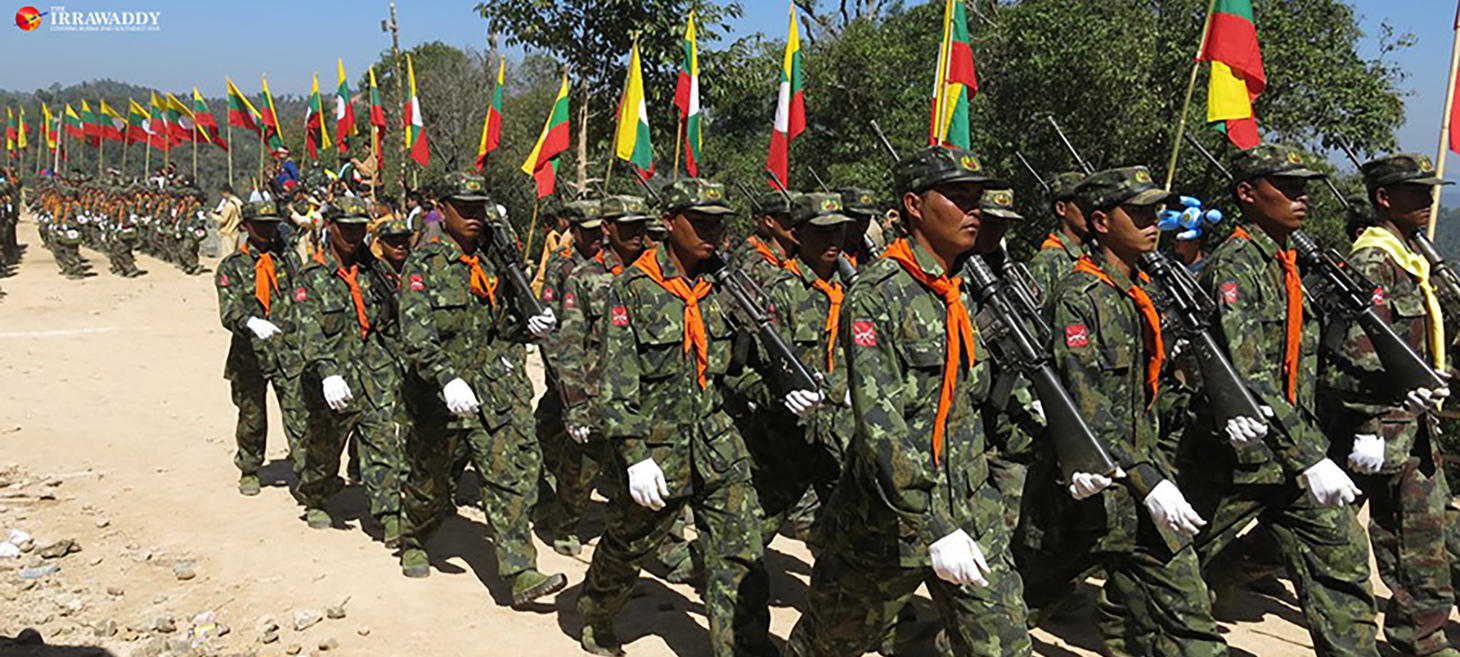
RCSS Says Members Caught Selling Arms by Myanmar Junta Were Rogue Elements
The Restoration Council of Shan State/Shan State Army (RCSS/SSA) clarified that five of its troops detained by the Myanmar military regime for allegedly transporting weapons and ammunition to ethnic armed groups in Karenni (Kayah) and Karen states were acting independently while on leave, emphasizing they violated the organization's rules against illicit arms sales. The regime announced the arrest near Mat Kyan Village, seizing a significant cache of weapons and ammunition, claiming these were intended for groups fighting against the junta in Karenni State and the Karen-Karenni border, and were sourced from the Kachin Independence Army (KIA). The RCSS/SSA, which has maintained a ceasefire since the 2015 Nationwide Ceasefire Agreement and has not clashed with junta forces post-coup, distanced itself from the incident, asserting its strict prohibition on arms trafficking. This situation highlights the complexities within Myanmar's ethnic armed groups' dynamics and their interactions amidst ongoing conflict, with the regime accusing detained individuals of supporting anti-regime forces, a claim that underscores the broader struggle against the military's control and the challenges of maintaining neutrality or compliance with ceasefire agreements in a volatile environment.
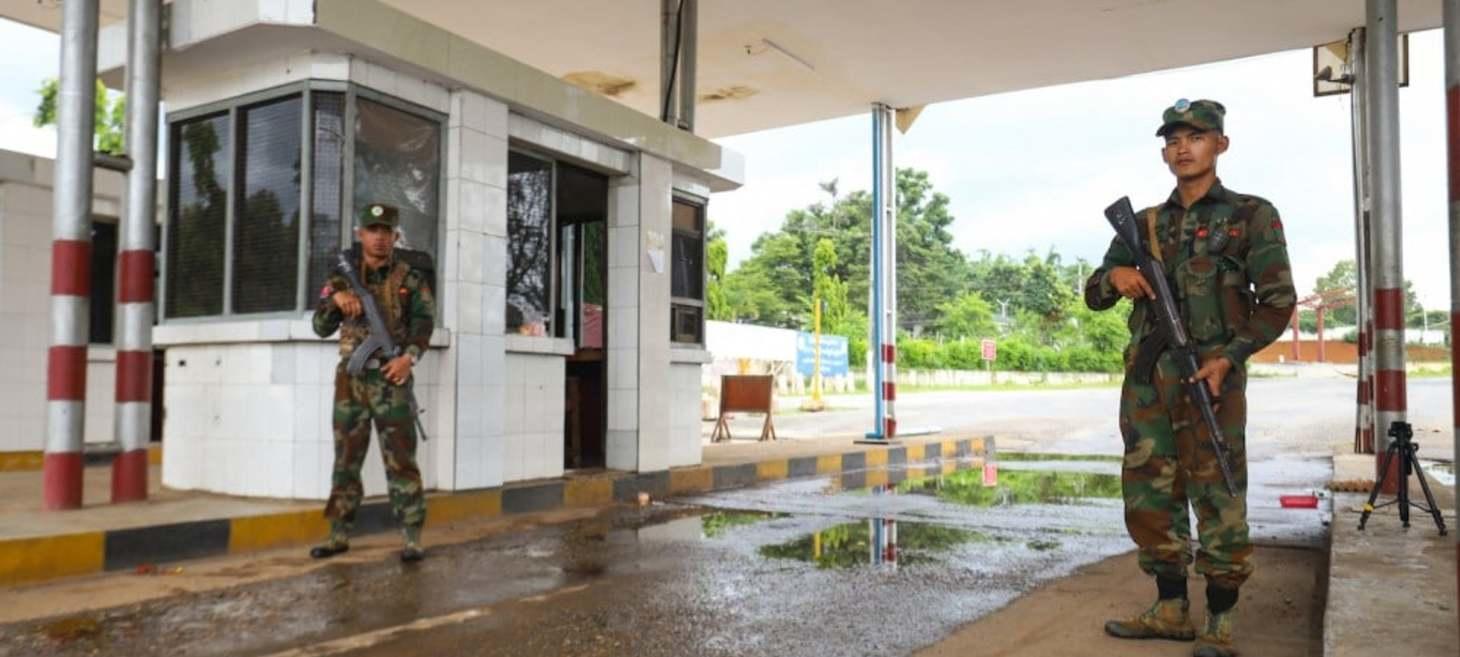
Myanmar’s Armed Groups And Democracy Activists Are Joining Forces
Following the Arakan Army's capture of Buthidaung town in northern Rakhine State from the Myanmar military, allegations of the group setting fire to Rohingya homes have emerged, echoing past communal violence and raising concerns about the group's commitment to inclusivity in its fight for Rakhine's political rights. Despite hopes that ethnic armed organizations could lead Myanmar towards federal democracy post-coup, the reality of achieving a unified vision for federalism remains elusive, with groups like the Arakan Army potentially seeking autonomy rather than a shared federal structure. The military's recent activation of a conscription law to bolster its forces, including recruiting from the Rohingya, has further complicated the conflict, with accusations of violence against various communities. Amidst these challenges, the Crisis Group suggests that ethnic militias' victories may hinder federal union aspirations, as they are unlikely to cede power to a central government. The situation in Rakhine, marked by accusations of arson and abuse, underscores the complex dynamics of Myanmar's civil war, where the quest for autonomy clashes with the ideals of federal democracy, and the military's desperate measures to regain control highlight the deepening crisis. This context reveals the multifaceted nature of Myanmar's struggle, where the pursuit of political goals by armed groups and the military's actions against a backdrop of historical marginalization and violence threatens to derail any progress towards a stable, inclusive federal system, with the Arakan Army's actions against the Rohingya indicating the challenges of reconciling ethnic aspirations with democratic principles and the protection of minority rights.
Foreign Affairs
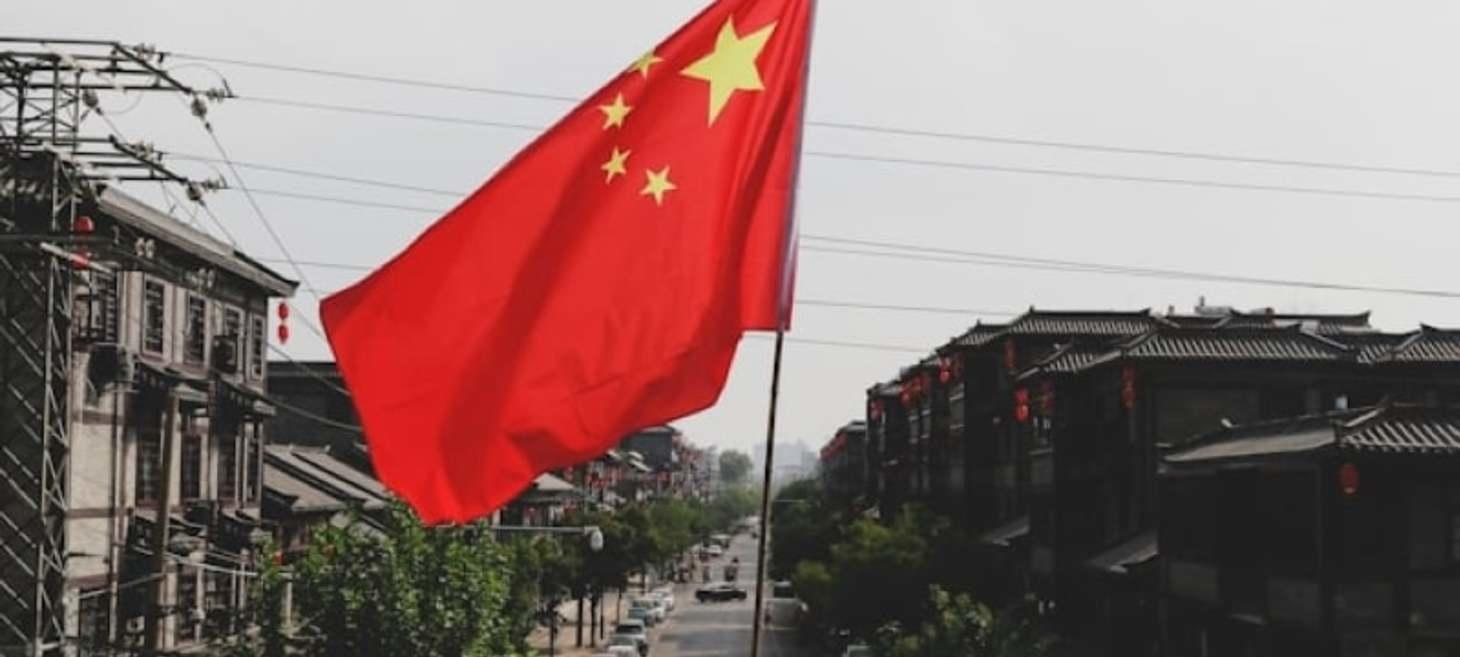
Chinese Communist Party Invites Registered Myanmar Political Parties for Seven-Day Visit
The Chinese Communist Party has invited representatives from several political parties in Myanmar, including the Union Solidarity and Development Party (USDP), People’s Party (PP), Arakan Front Party (AFP), and Shan Nationalities Democratic Party (SNDP), for a seven-day official visit to China from July 20 to 27. This invitation comes amidst ongoing efforts to foster stability and peace in Myanmar, with discussions expected to revolve around China's rural development initiatives and the Belt and Road Initiative (BRI). Notably absent from the invitees is the National League for Democracy (NLD), due to its registration refusal by the Military Council’s Election Commission. The BRI, encompassing significant projects like the Silk Road Economic Belt and the 21st Century Maritime Silk Road, highlights the strategic importance of Myanmar's Kyauk Phyu Deep Water Sea Port, a key component with a $1.3 billion budget. Concurrently, Lieutenant Colonel Soe Win, Deputy Commander-in-Chief of Defence Services, is visiting China to discuss the security of Chinese projects in Myanmar, underscoring the multifaceted engagement between the two nations amidst complex political dynamics.
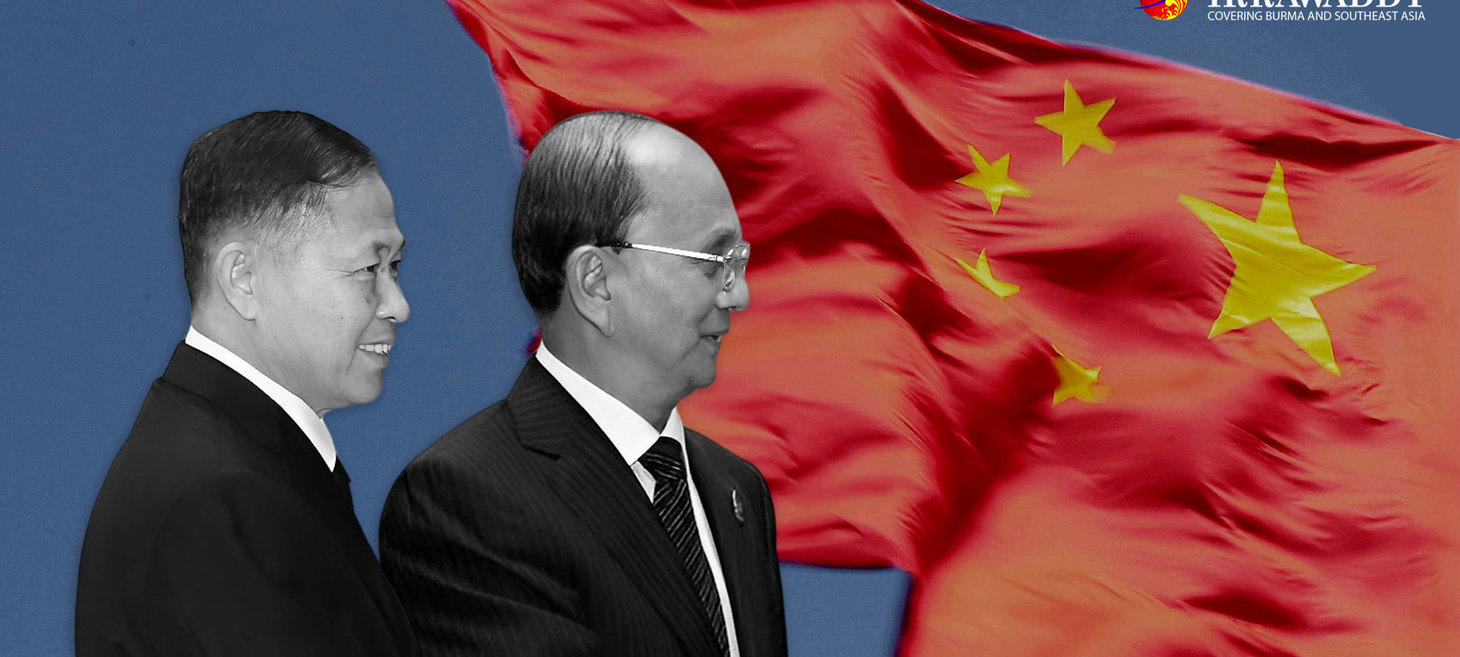
The Chinese Way of ‘Peacemaking’ and ‘Democracy-Building’ in Myanmar
China's recent invitations to former Myanmar President Thein Sein and General Soe Win, the deputy chief of the current junta, for visits have sparked speculation about Beijing's intentions amidst Myanmar's ongoing conflict, especially as fighting between ethnic armies and junta forces resumed in northern Shan State and the Arakan Army advanced in Rakhine State, areas significant to China's strategic interests. Thein Sein's visit, ostensibly for a commemorative event, and rumors of China's desire for a transitional government or Thein Sein's potential re-entry into politics, highlight Beijing's dissatisfaction with the junta's leadership and its interest in stability. General Soe Win's visit to Qingdao, focusing on border stability and security for Chinese investments, underscores China's concern over the conflict's impact on its projects in Myanmar. The United Wa State Army's (UWSA) deployment in Tangyan, following negotiations with the regime, suggests China's influence in shaping the conflict, particularly in supporting the Wa's territorial ambitions and potentially easing tensions in the north. The junta's recognition of Chinese New Year as a national holiday, a first in Myanmar's history, reflects an unprecedented level of dependence on Beijing, amid concerns over China's growing influence and the strategic importance of Myanmar for its geostrategic and economic interests, including pipelines and access to the Indian Ocean. These developments indicate China's complex role in Myanmar's conflict, balancing between supporting ethnic armed groups and maintaining relations with the junta, while the UWSA's expansion and the regime's concessions to it point towards a deepening Chinese involvement in the country's internal affairs, raising questions about the future of Myanmar's sovereignty and the extent of Chinese influence.
Military
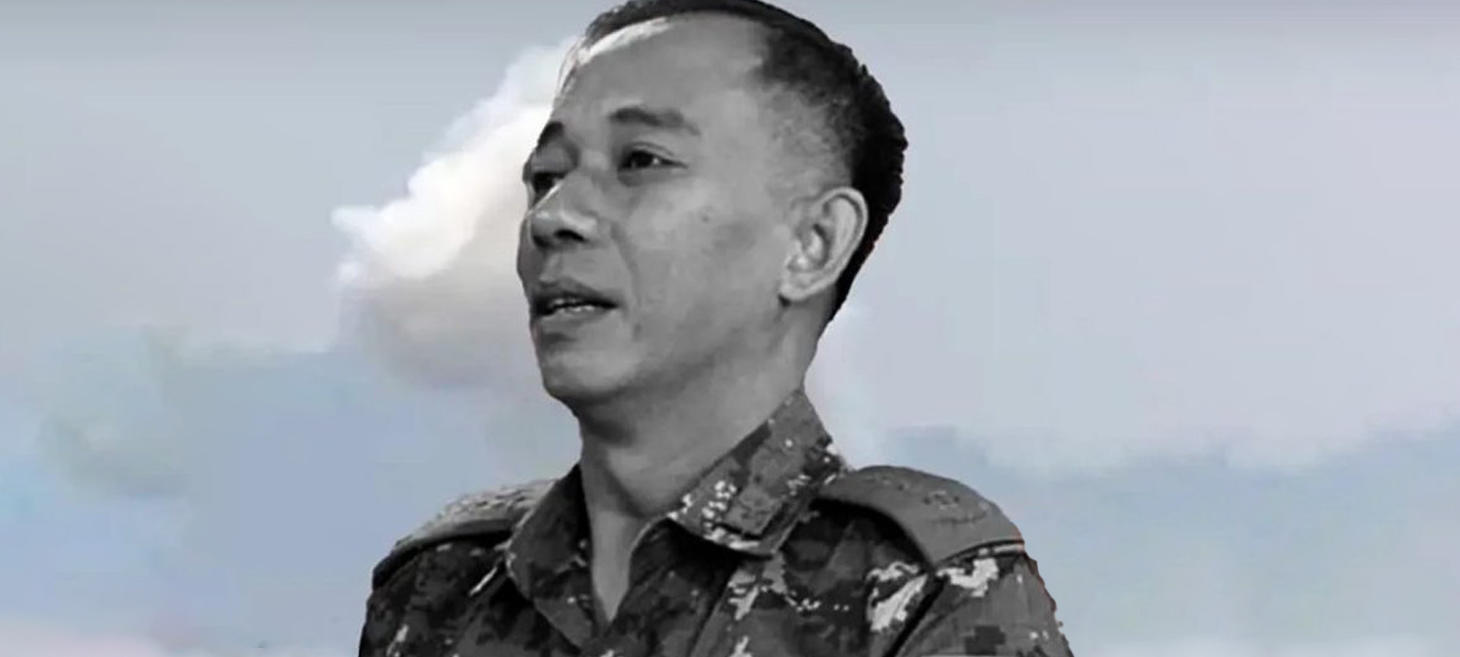
Myanmar General Jailed Over Humiliating Battlefield Defeat Near Thai Border
Brigadier-General Soe Min Htet, formerly of the 44th Light Infantry Division, was recently sentenced to 14 years in prison for retreating from his base in Myawaddy during a clash with resistance forces, highlighting the military junta's punitive actions against officers deemed responsible for their losses. This incident, part of a broader pattern of military defeats and subsequent punishments, underscores the junta's struggles in maintaining control and its harsh response to perceived failures within its ranks.
Sanctions
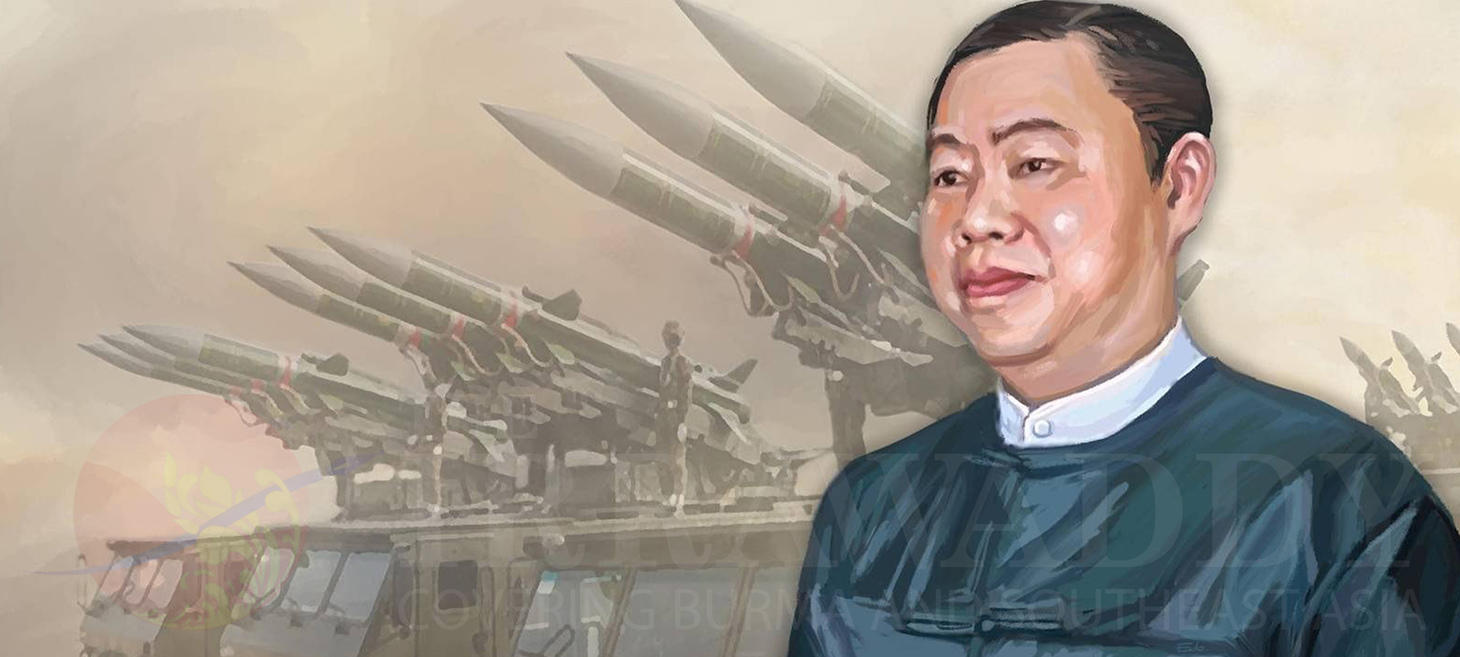
Aung Hlaing Oo: Favored Go-Between for Junta, E. Europe Arms Makers
Aung Hlaing Oo, a discreet businessman and regular patron of the upscale Yangon Gallery restaurant near the Shwedagon Pagoda, has risen to prominence through his connections to Myanmar's military junta and involvement in the arms trade. His favored venue for business meetings and casual dining is partly due to its owner being the son of junta leader Senior General Min Aung Hlaing. Despite keeping a low profile, Aung Hlaing Oo's dealings, especially his role as a middleman in arms acquisitions from former Soviet Bloc countries and his appointment as Ukraine's honorary consul in Myanmar, have thrust him into the spotlight. His primary enterprise, Myanmar Chemical & Machinery Co. (MCM), facilitates the procurement of military equipment and technology from Ukraine, contributing significantly to Myanmar's arsenal. This includes the establishment of a factory for producing armored vehicles and tanks, both for domestic use and export. Aung Hlaing Oo's operations extend beyond Ukraine, involving arms deals with Serbia and acting as a broker between China National Aero-Technology Import & Export Corporation (CATIC) and the Myanmar military. His deep connections within the junta, particularly with Lieutenant General Nyo Saw, underscore his pivotal role in the military's economic and strategic endeavors. Amidst international scrutiny and sanctions, Aung Hlaing Oo exemplifies the complex web of business interests intertwined with Myanmar's military regime.
Telecommunications
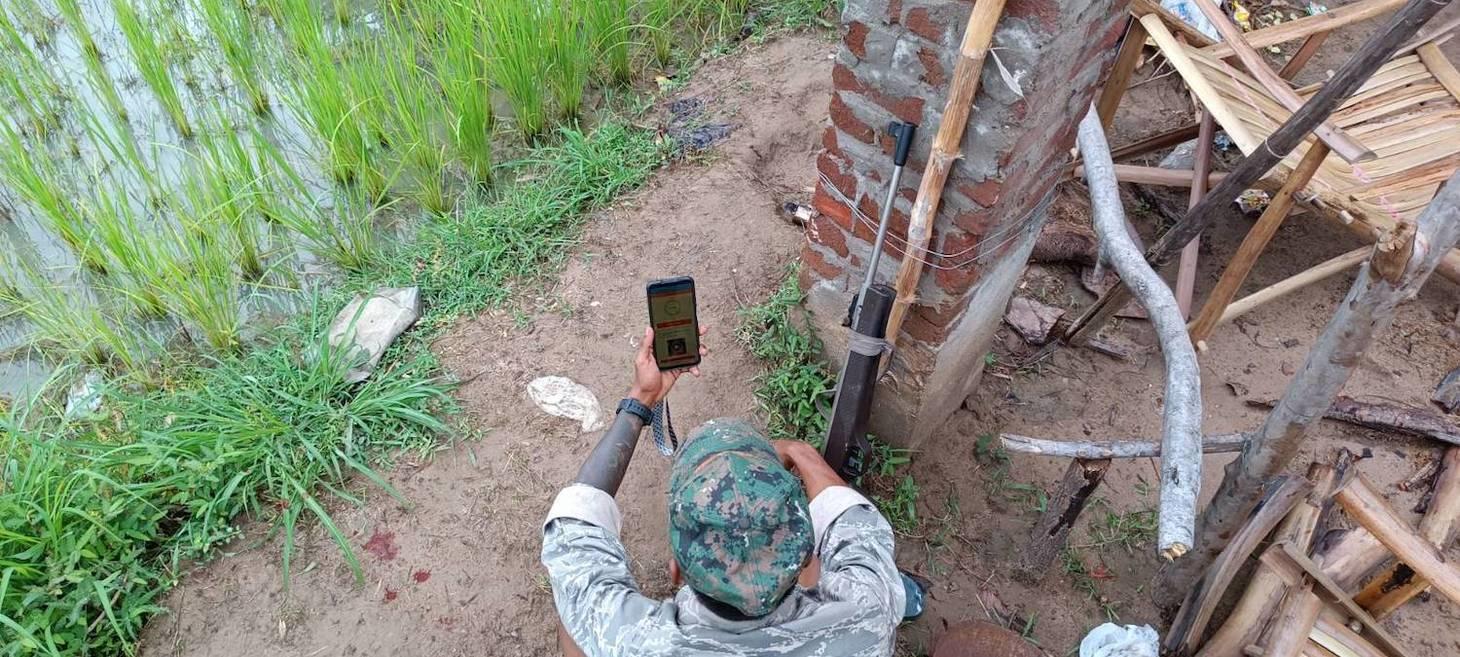
Staying online in Myanmar is a matter of life and death
In Myanmar's conflict-ridden zones, the internet serves as an essential lifeline, providing critical information about military activities and human rights violations, despite significant challenges including military-imposed shutdowns and infrastructure damage. Alternative communication technologies like long-range mesh networking devices, range extenders, and satellite internet services have emerged as crucial tools for maintaining connectivity. However, each method comes with its own set of limitations and challenges, ranging from high costs and legal restrictions for handheld transceivers to technical and logistical hurdles for satellite communications. The evolving landscape of alternative communications underscores the urgent need for innovative solutions and international support to bridge the digital divide and ensure Myanmar's population remains connected amidst ongoing conflict.
United Nations
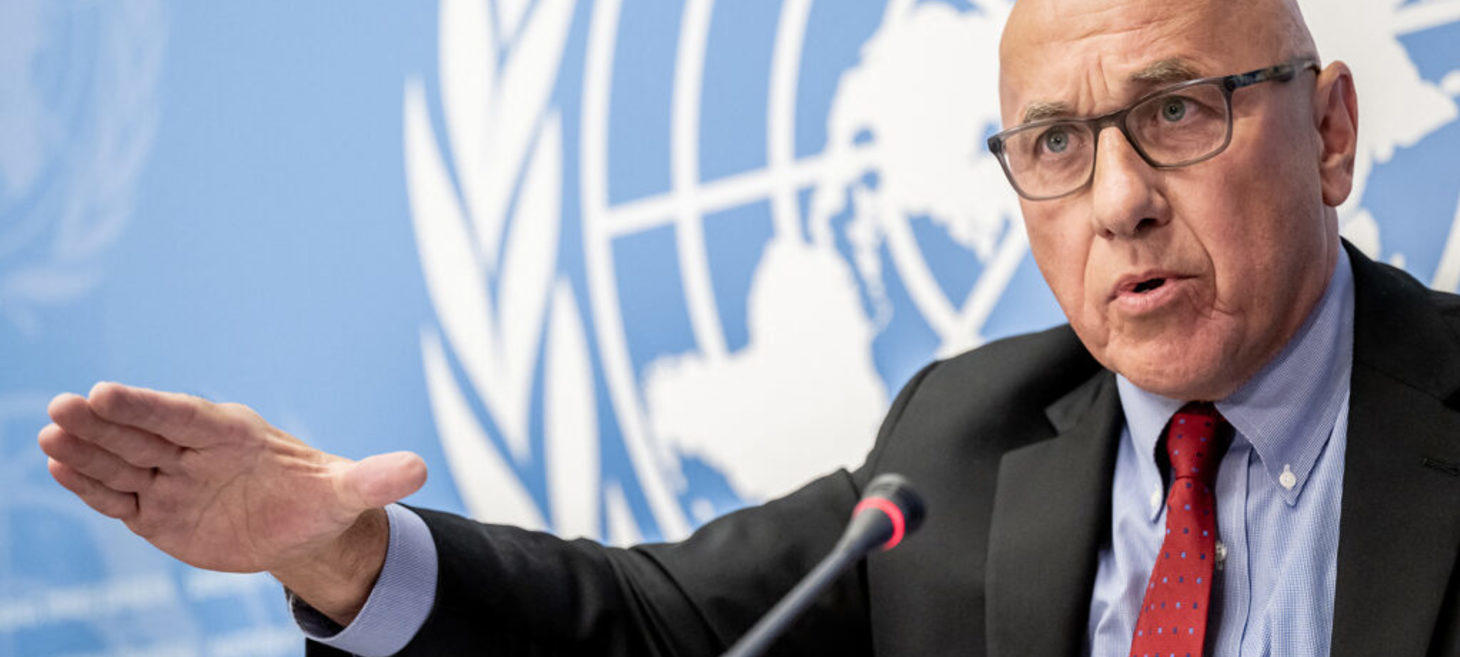
Myanmar Junta ‘Trying to Destroy Country’: UN Special Rapporteur
The UN special rapporteur to Myanmar, Tom Andrews, warned that the junta is "trying to destroy a country it cannot control" as clashes between ethnic minority armed groups and the military have shattered a Beijing-brokered truce, escalating violence since the 2021 coup. Amidst the junta's losses of troops and territory, including a key town along a trade highway to China, Andrews highlighted an increase in attacks on civilians, schools, hospitals, and monasteries, indicating a desperate response to their diminishing control. This situation underscores the junta's struggle to maintain power, with the military's brutal tactics against civilians and the erosion of a ceasefire that had temporarily halted widespread fighting, pointing to a critical juncture in Myanmar's conflict. The ongoing battles in northern Shan State, involving groups like the Arakan Army, Myanmar National Democratic Alliance Army, and Ta’ang National Liberation Army, reflect the junta's inability to stabilize the region, emphasizing the high stakes and the potential for further escalation as the military faces significant challenges to its authority, with the conflict's impact on civilian infrastructure and the strategic importance of the areas involved.